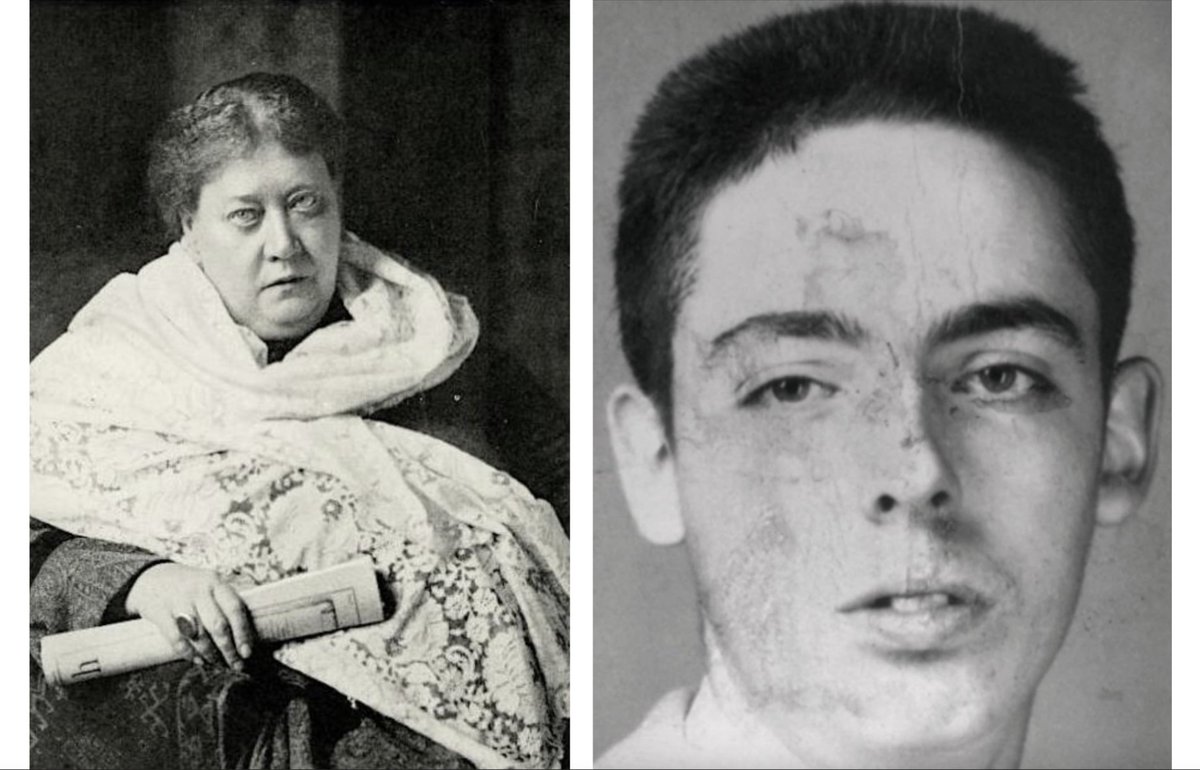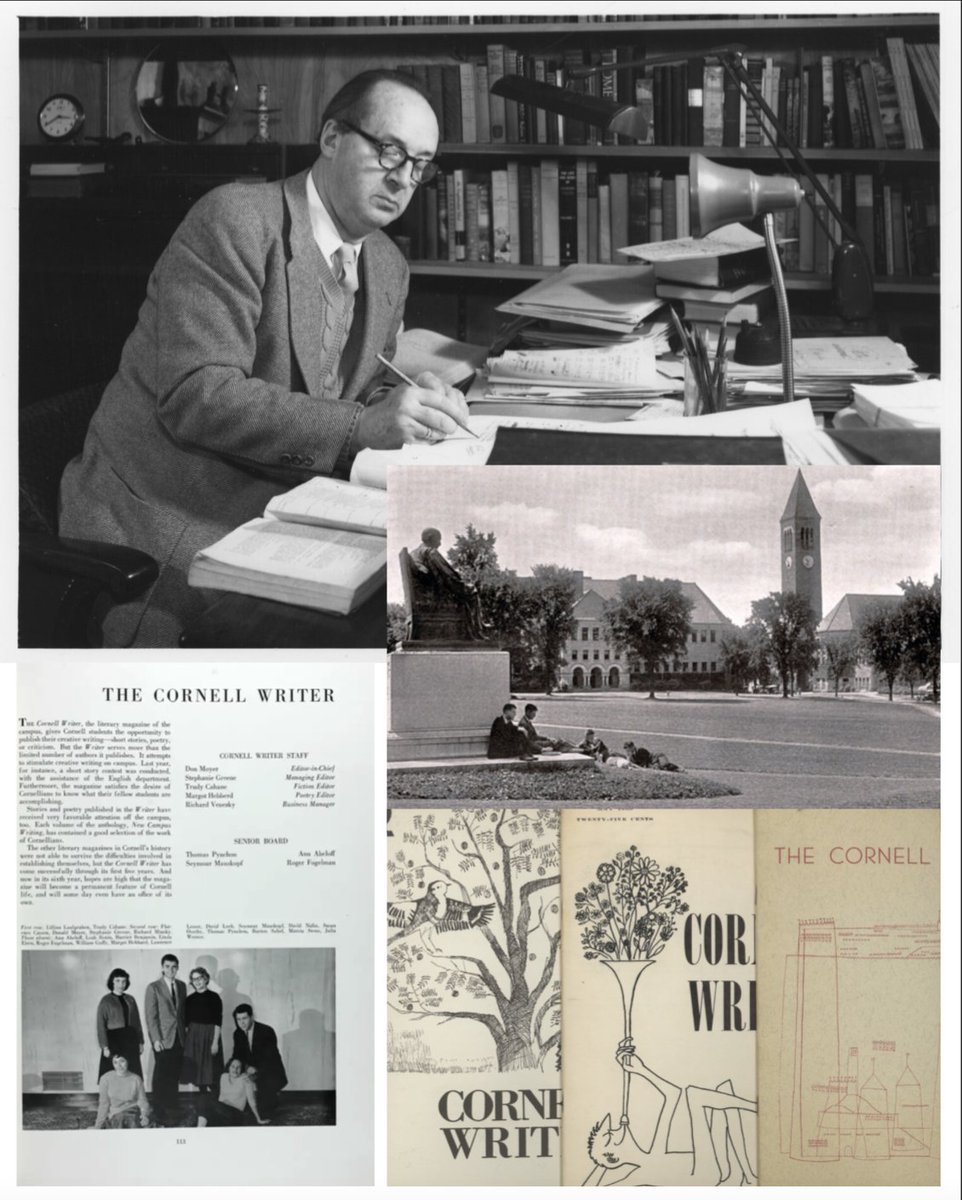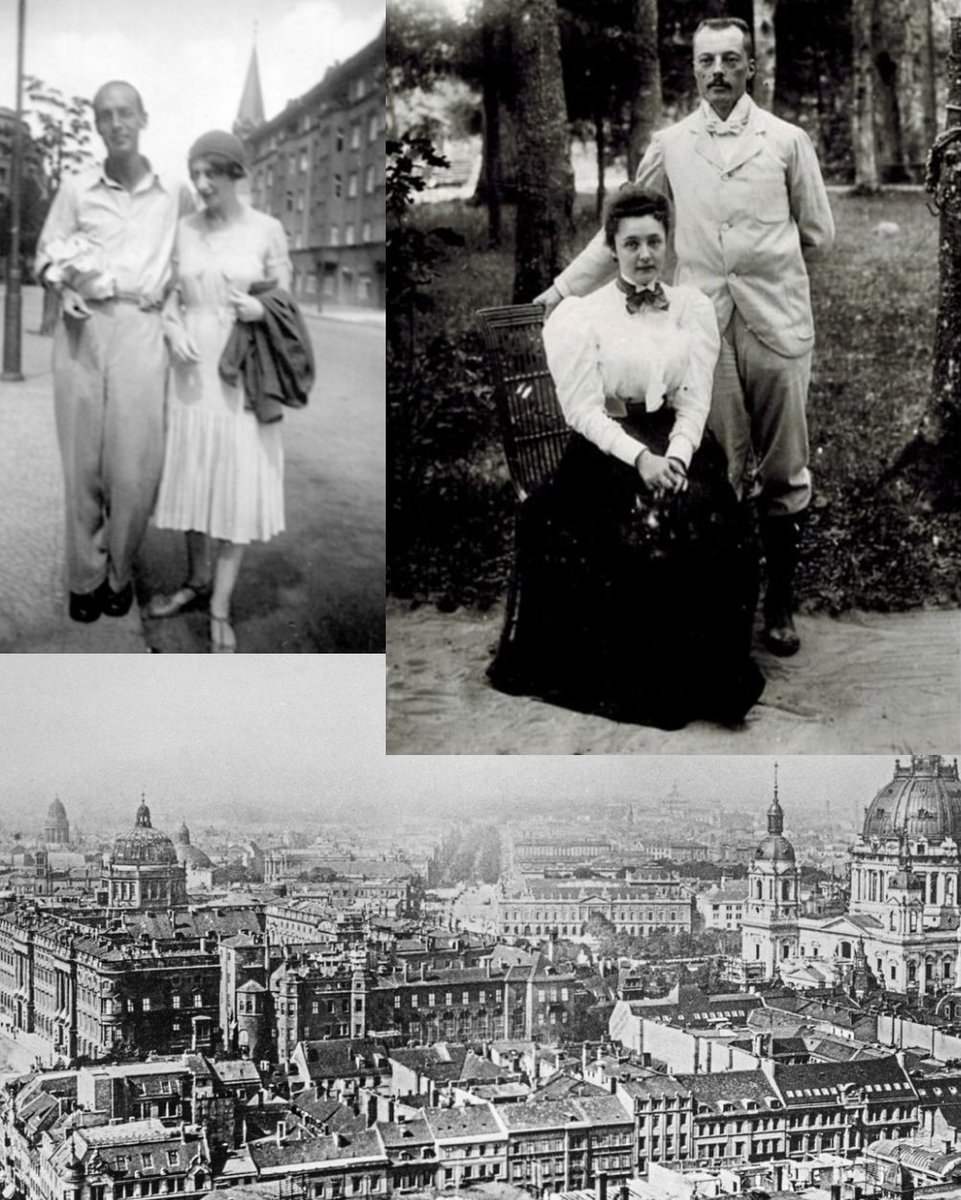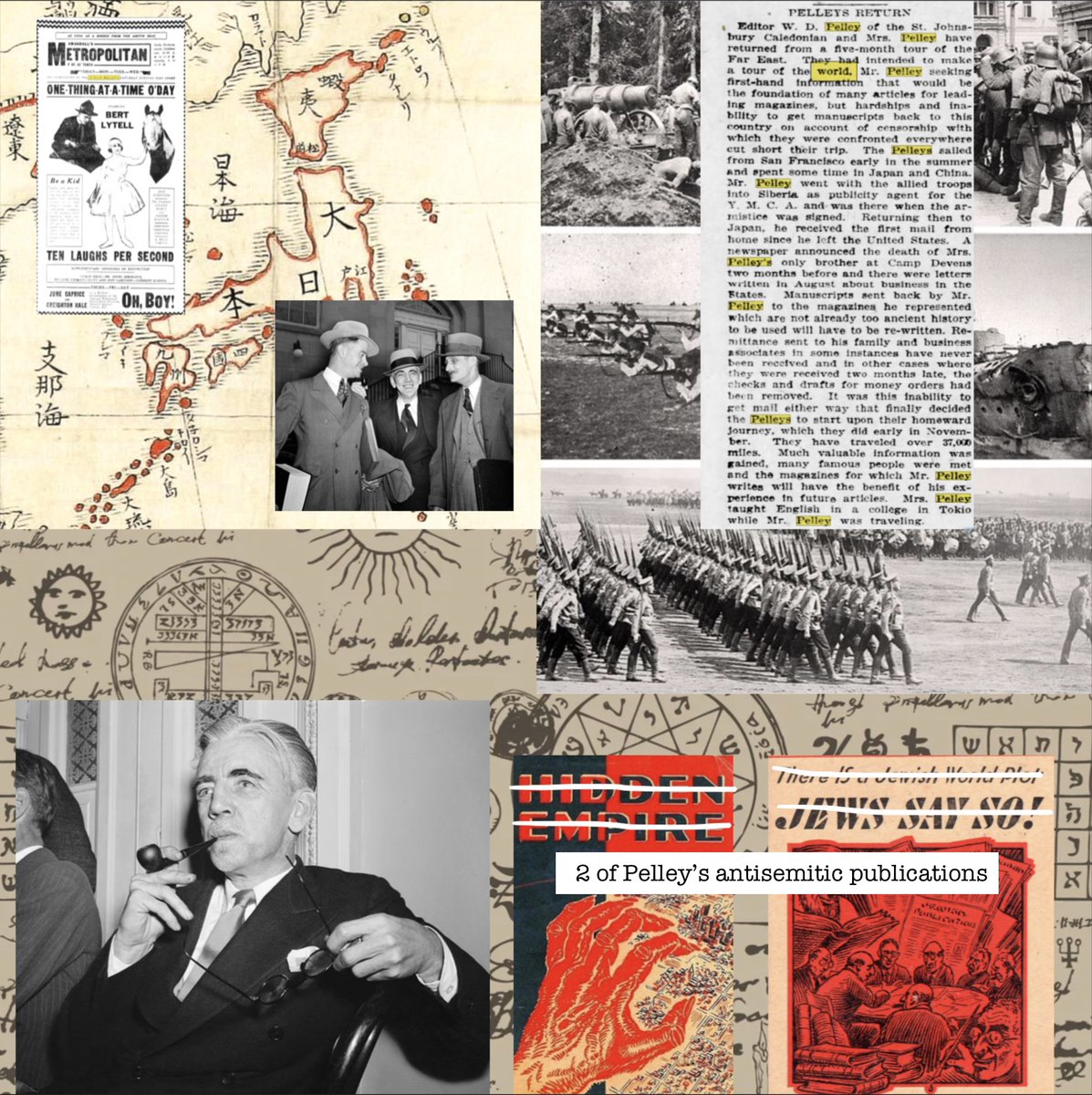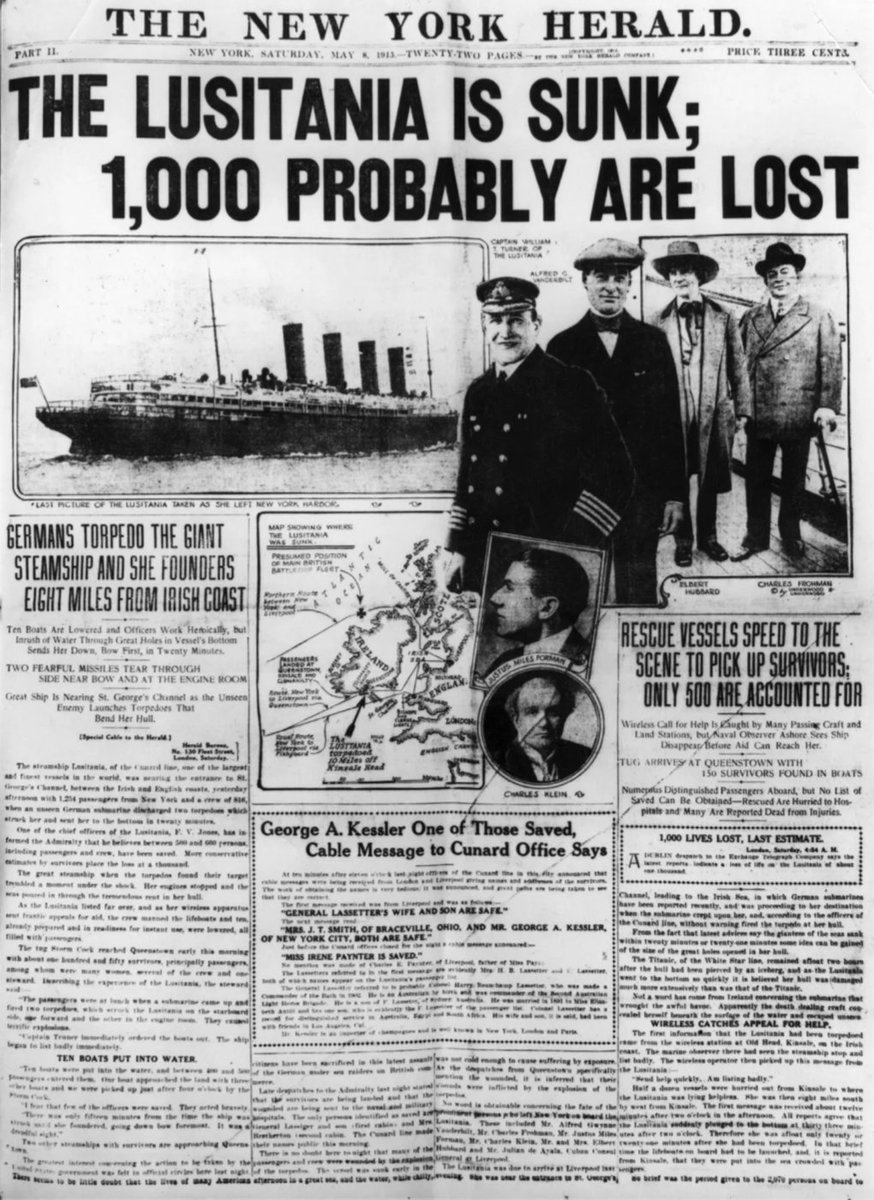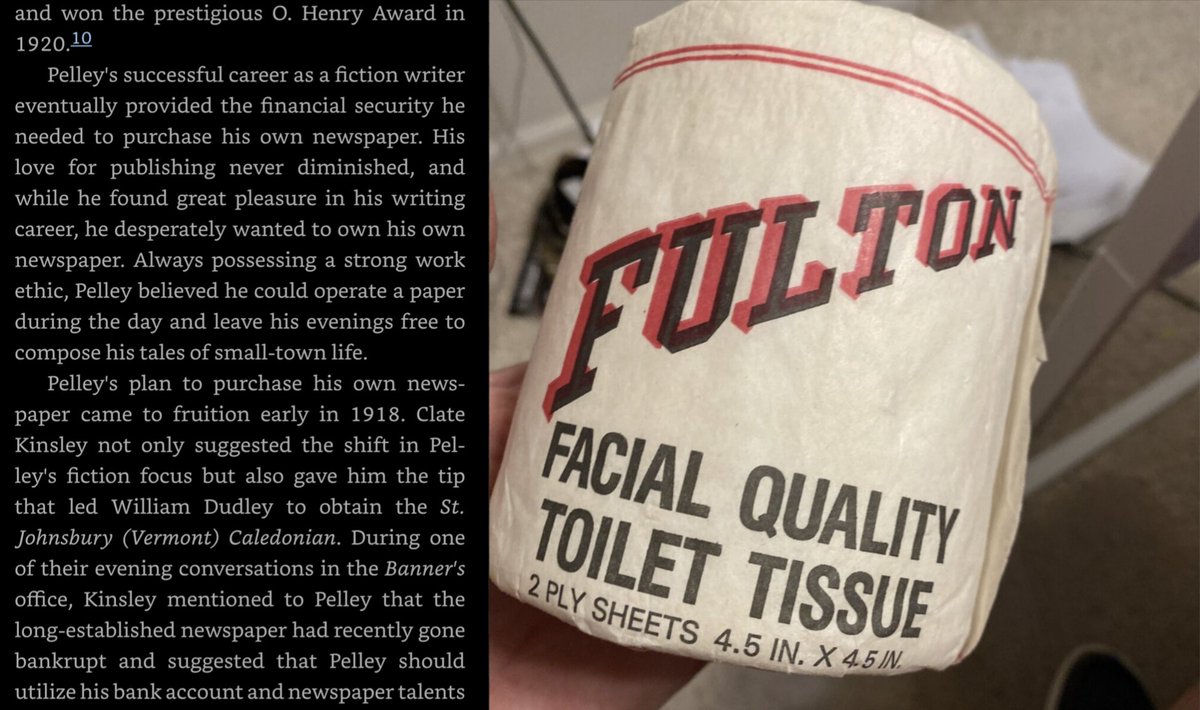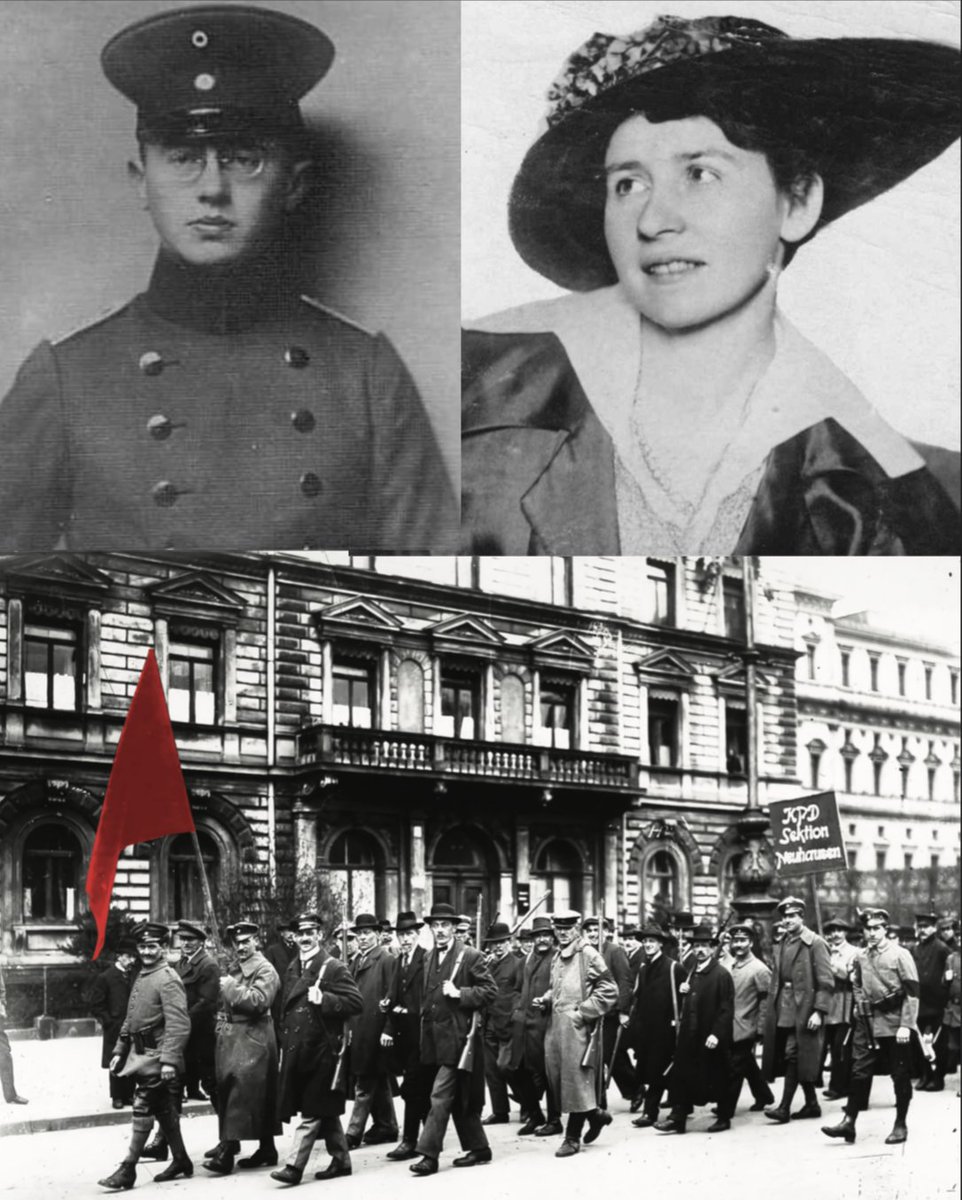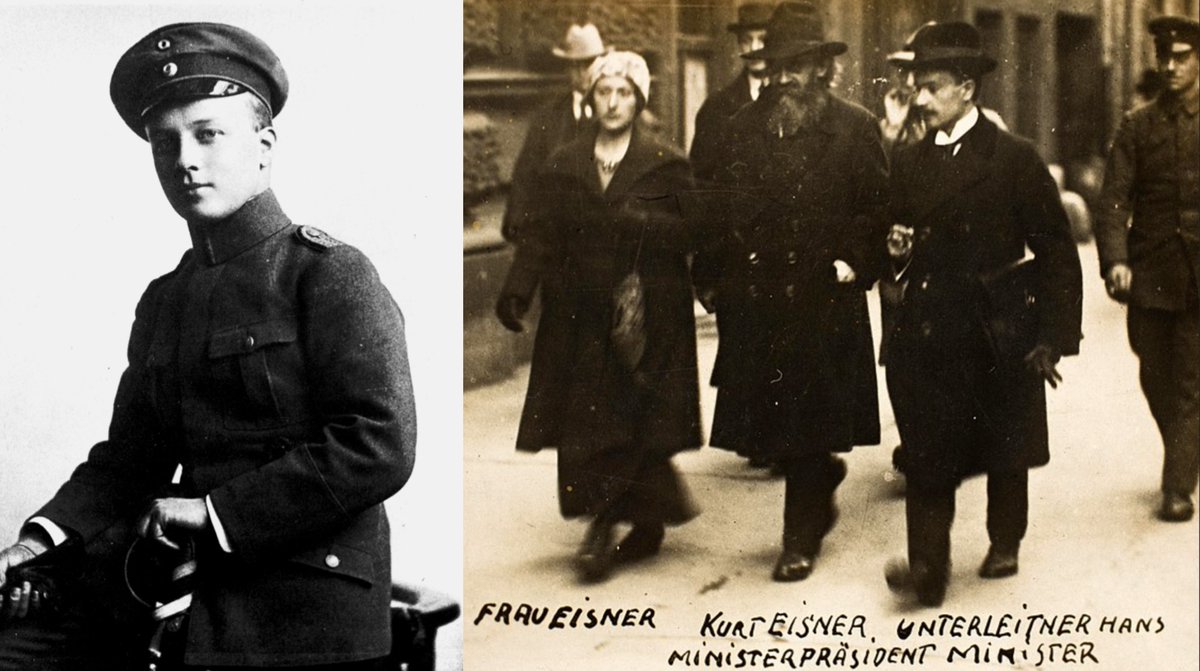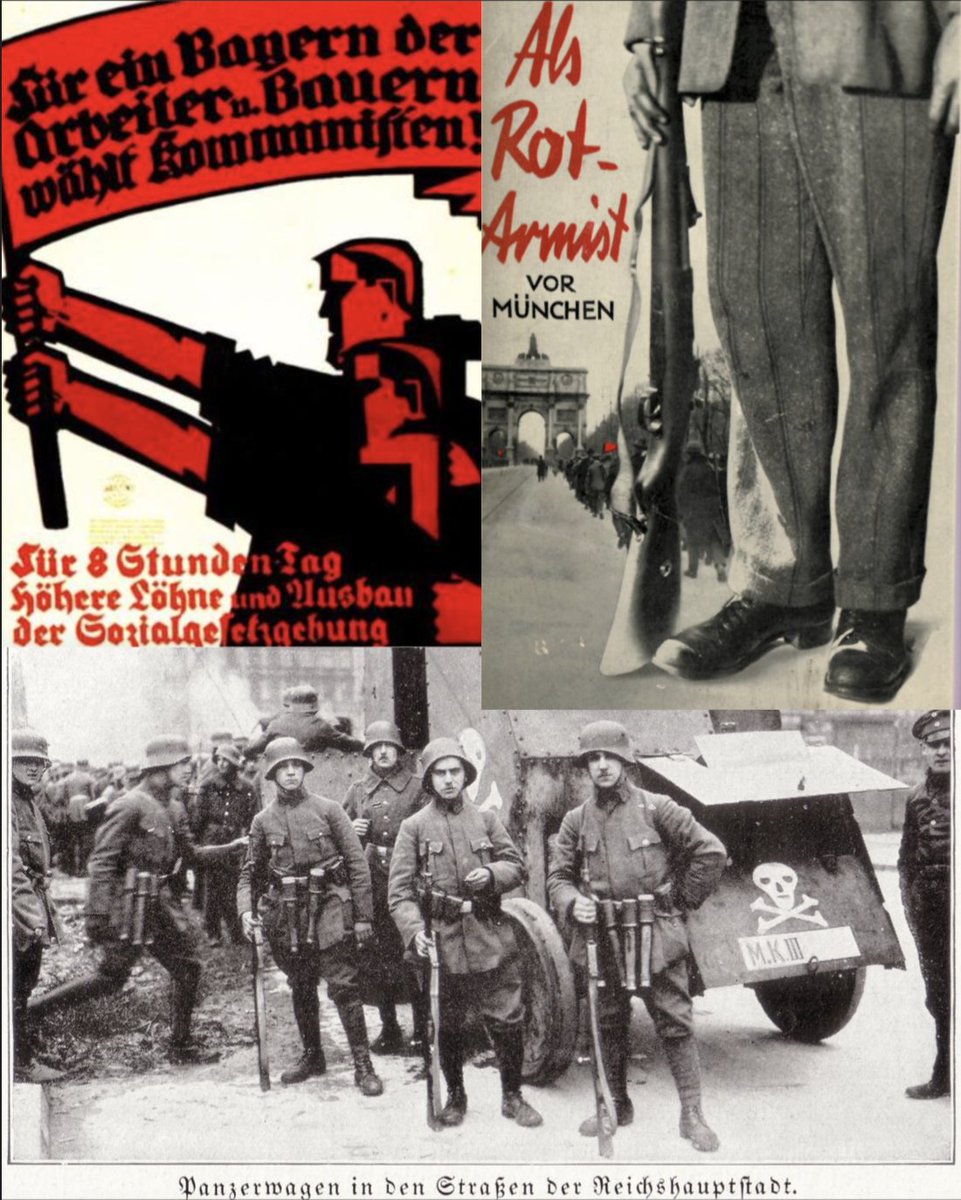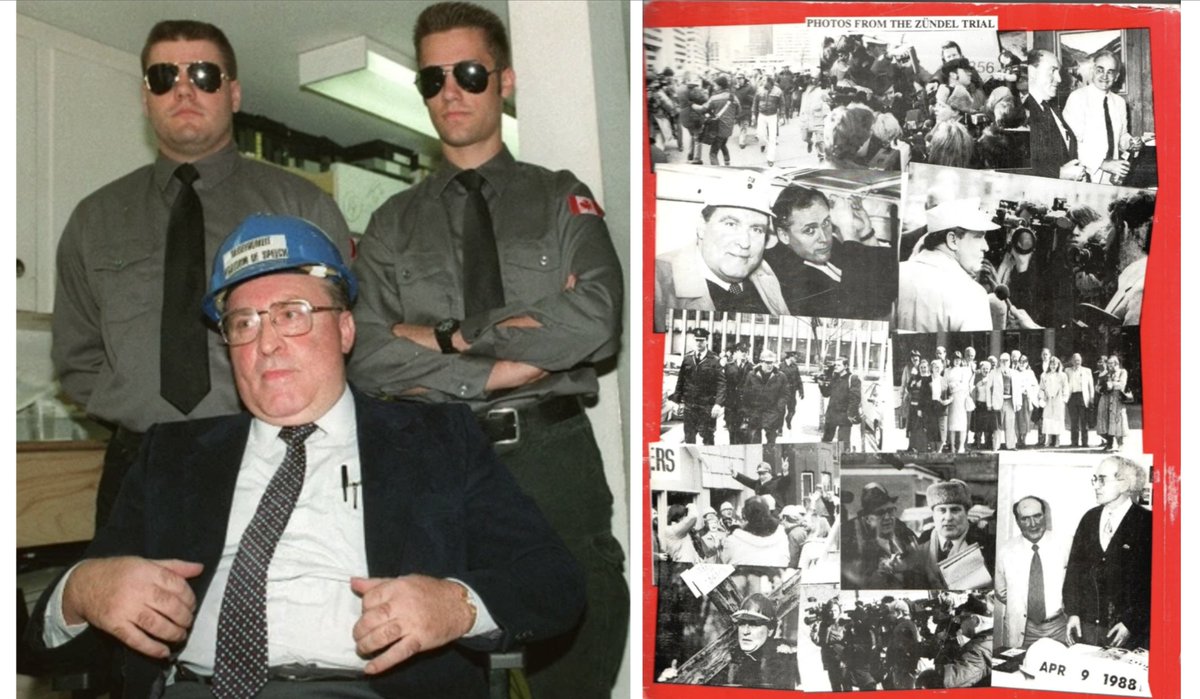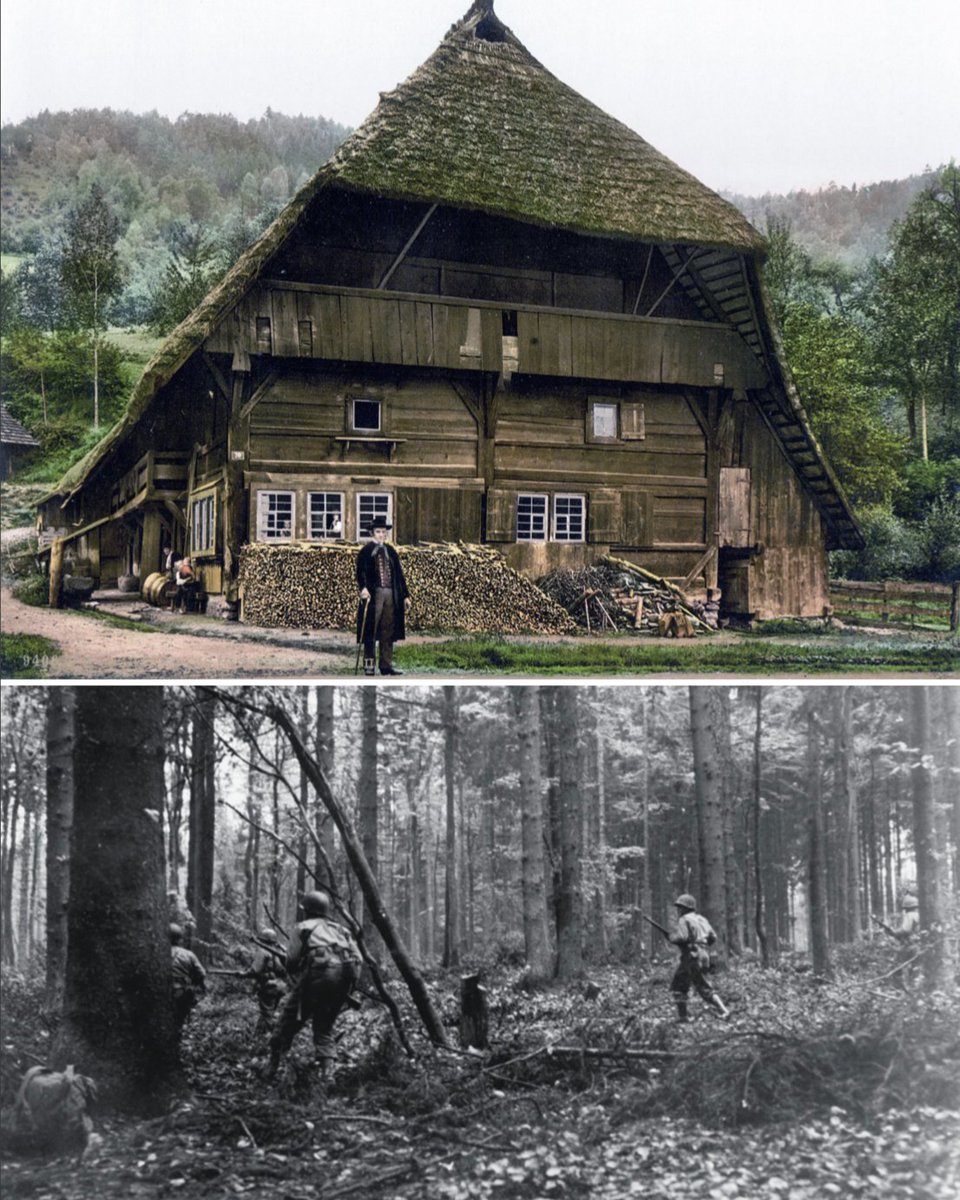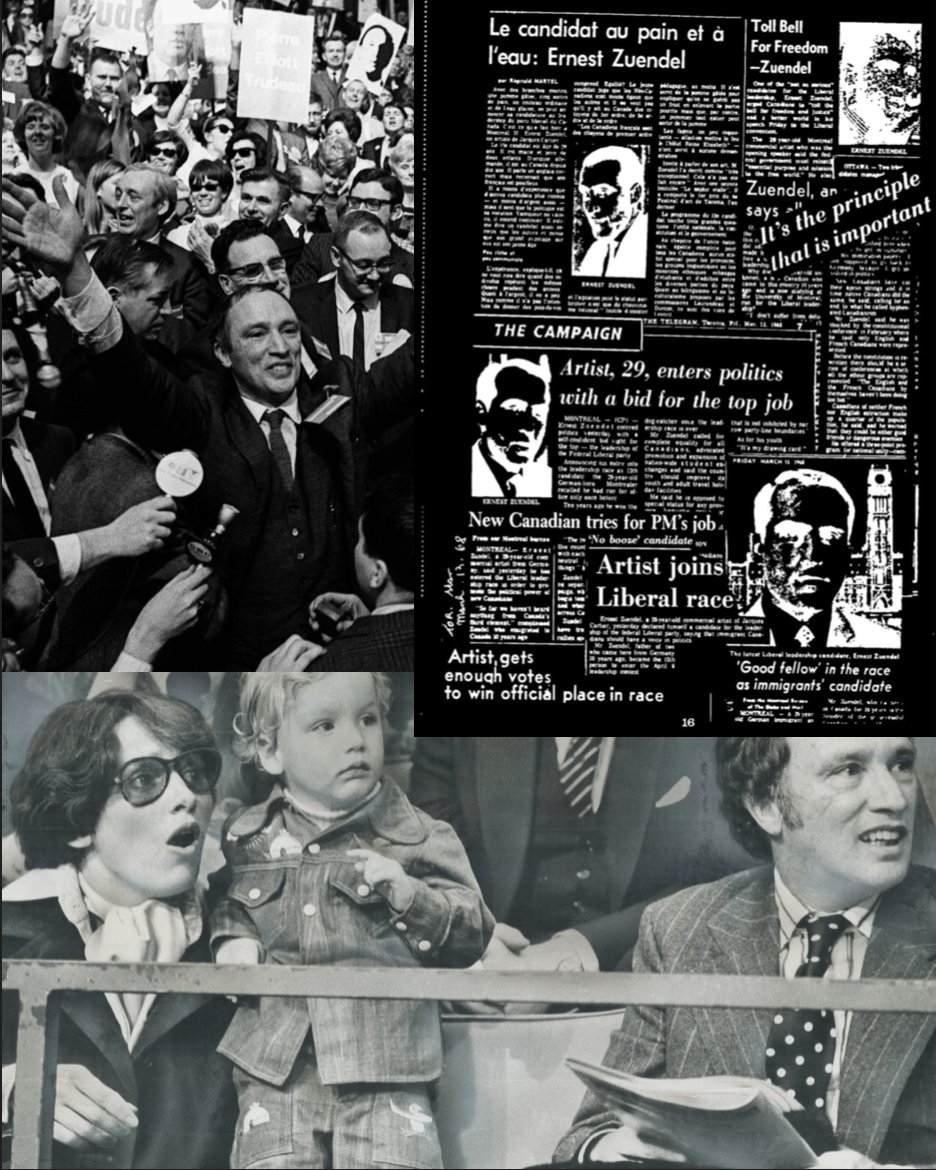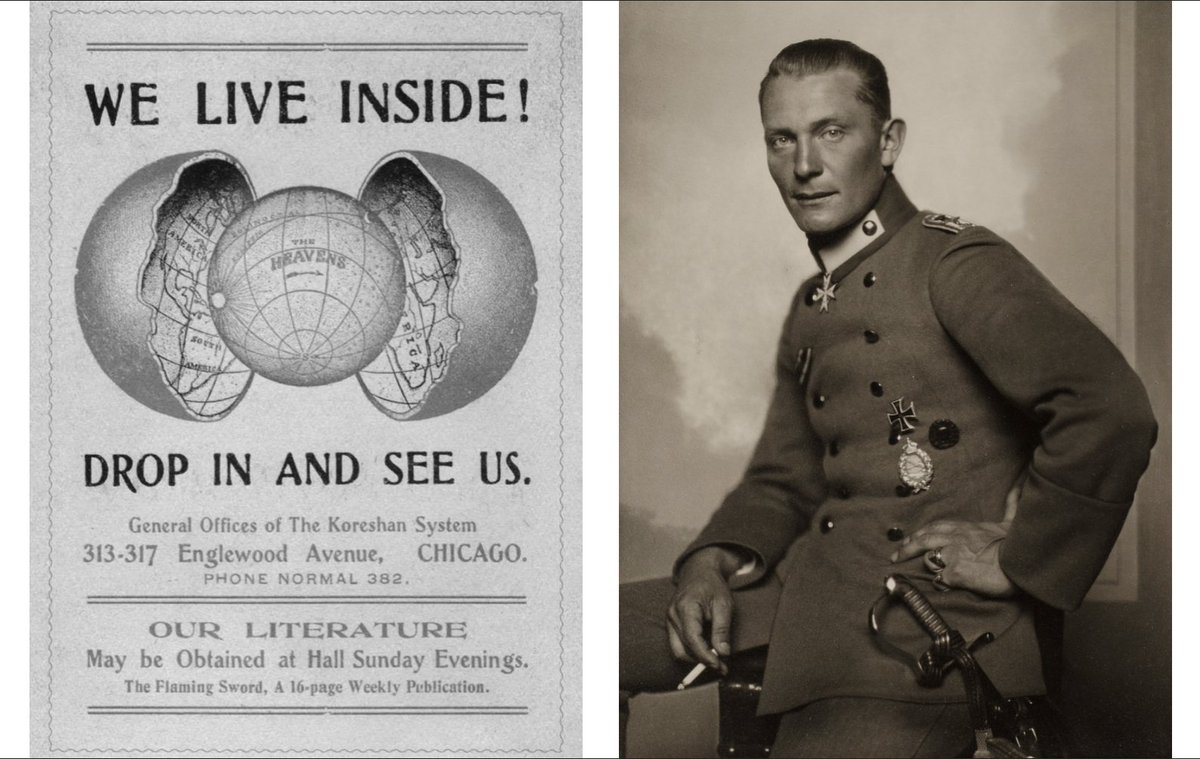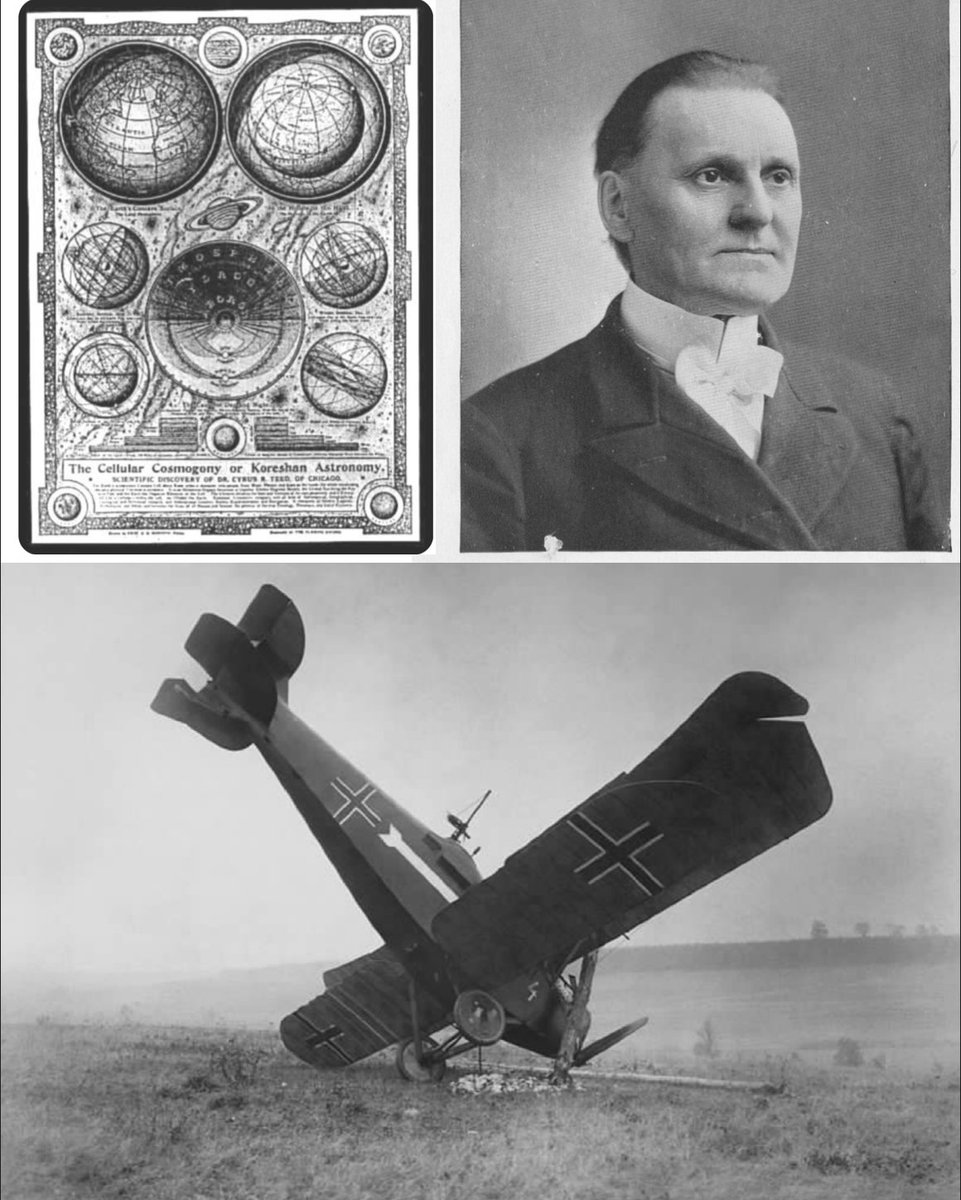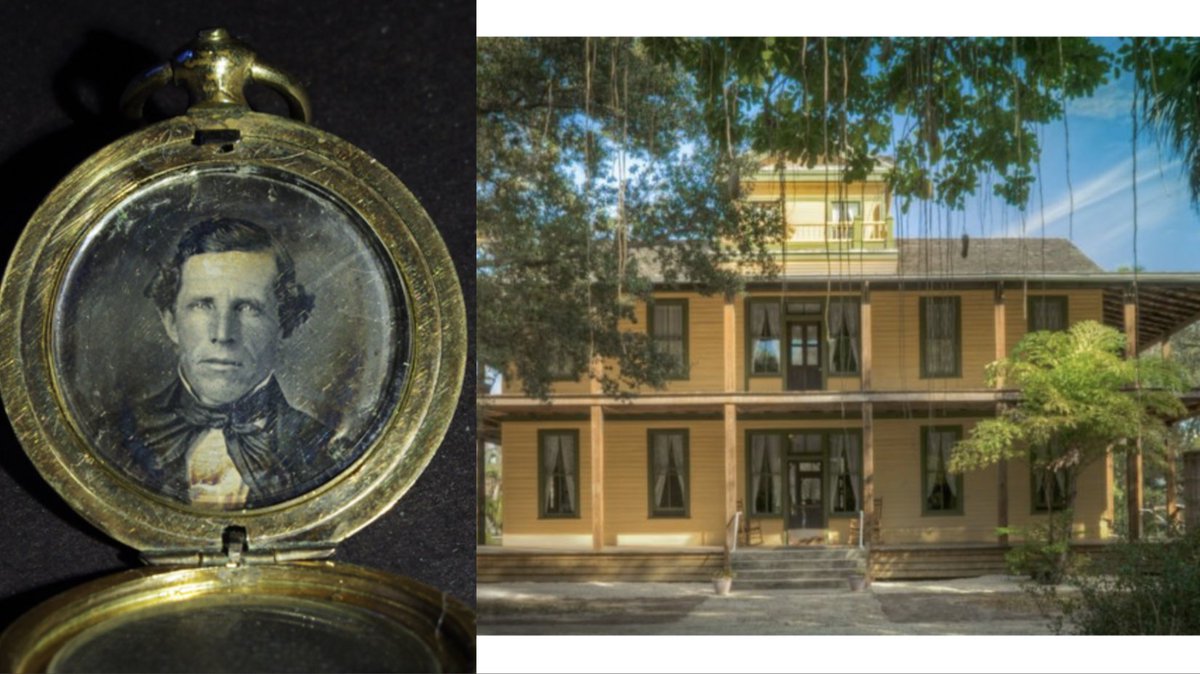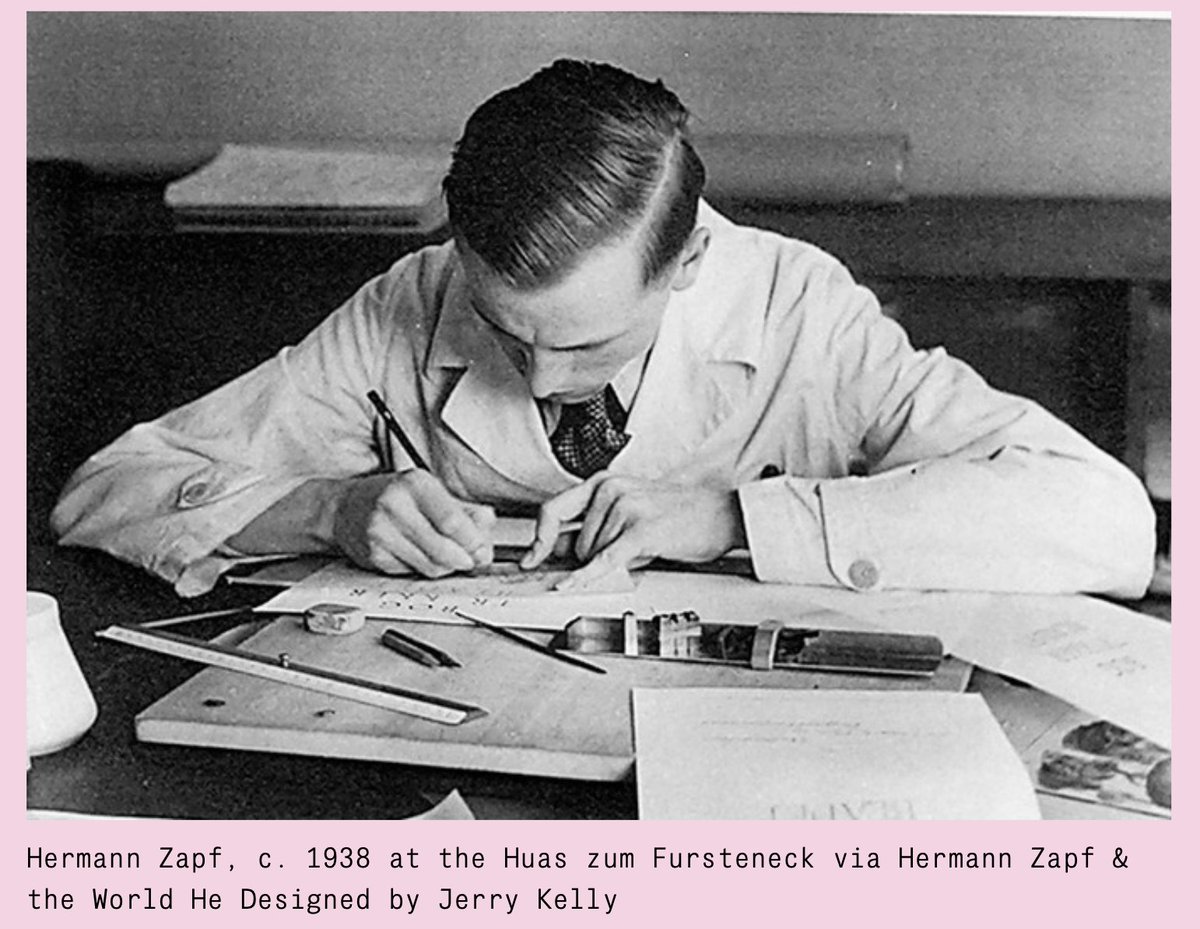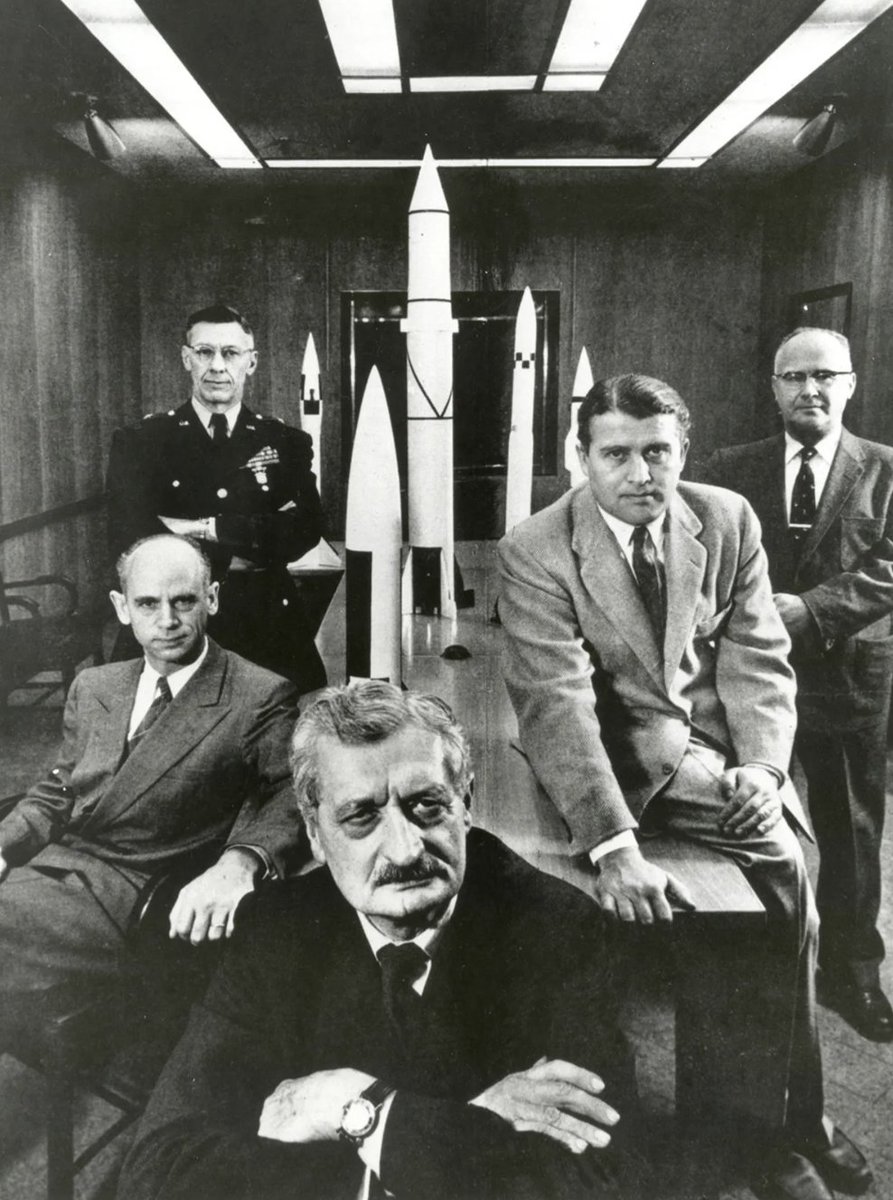1/ Sus Helena Blavatsky posting era cont'd. Time to discuss Henry Steel Olcott & his glowing involvement in some curious shit circa the Civil War. Did ya know that Olcott—Theosophical Society's 1st president—was part of a “3 man board” that investigated the Lincoln assassination? 
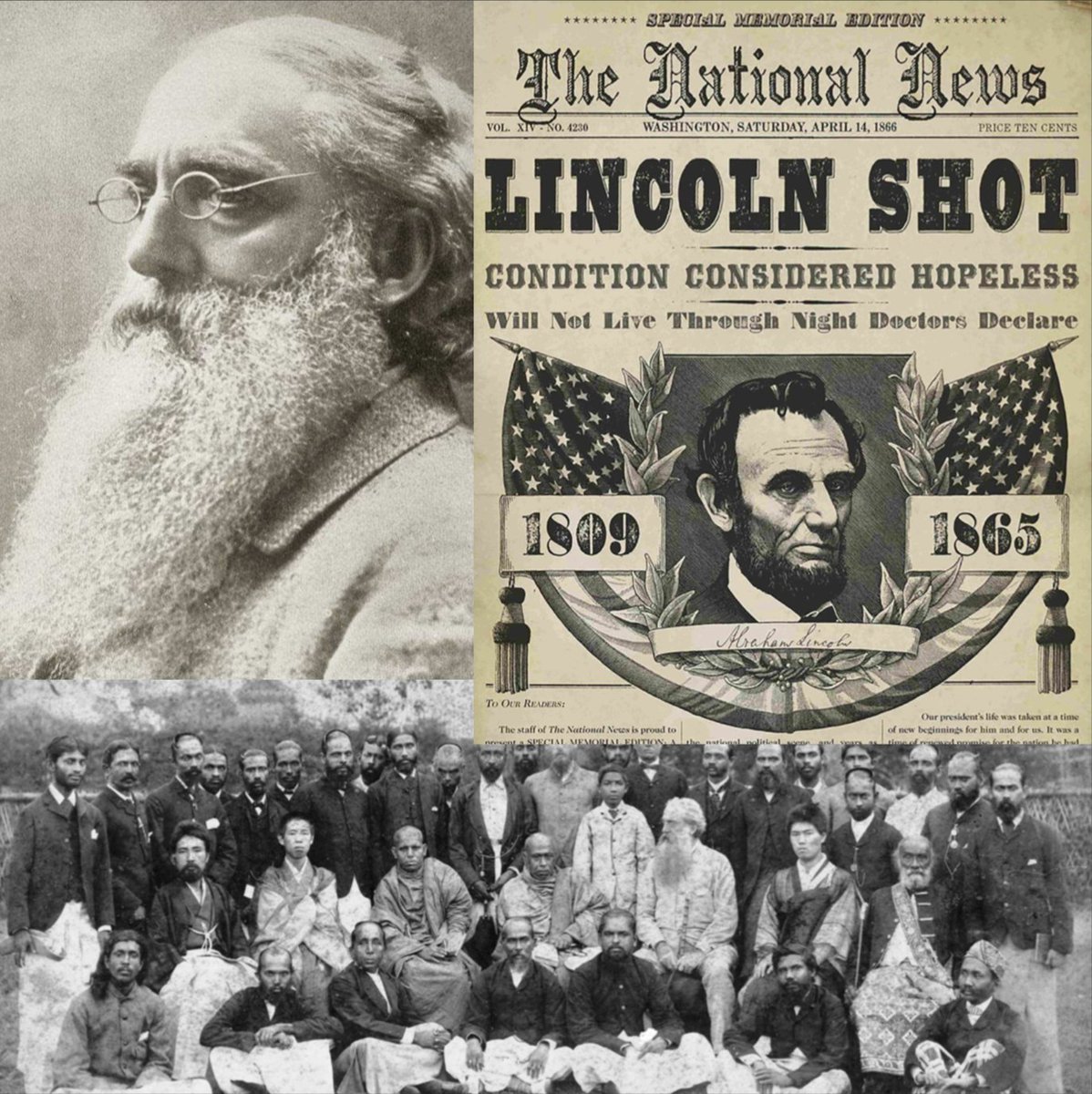
2/ Prior to the Civil War, Henry Steel Olcott was a correspondent & agricultural reporter at Horace Greeley's New York Tribune, where he worked w/ Charles Dana—who later became Assistant Assassintint Secretary under Edwin Stanton in the War Department. 
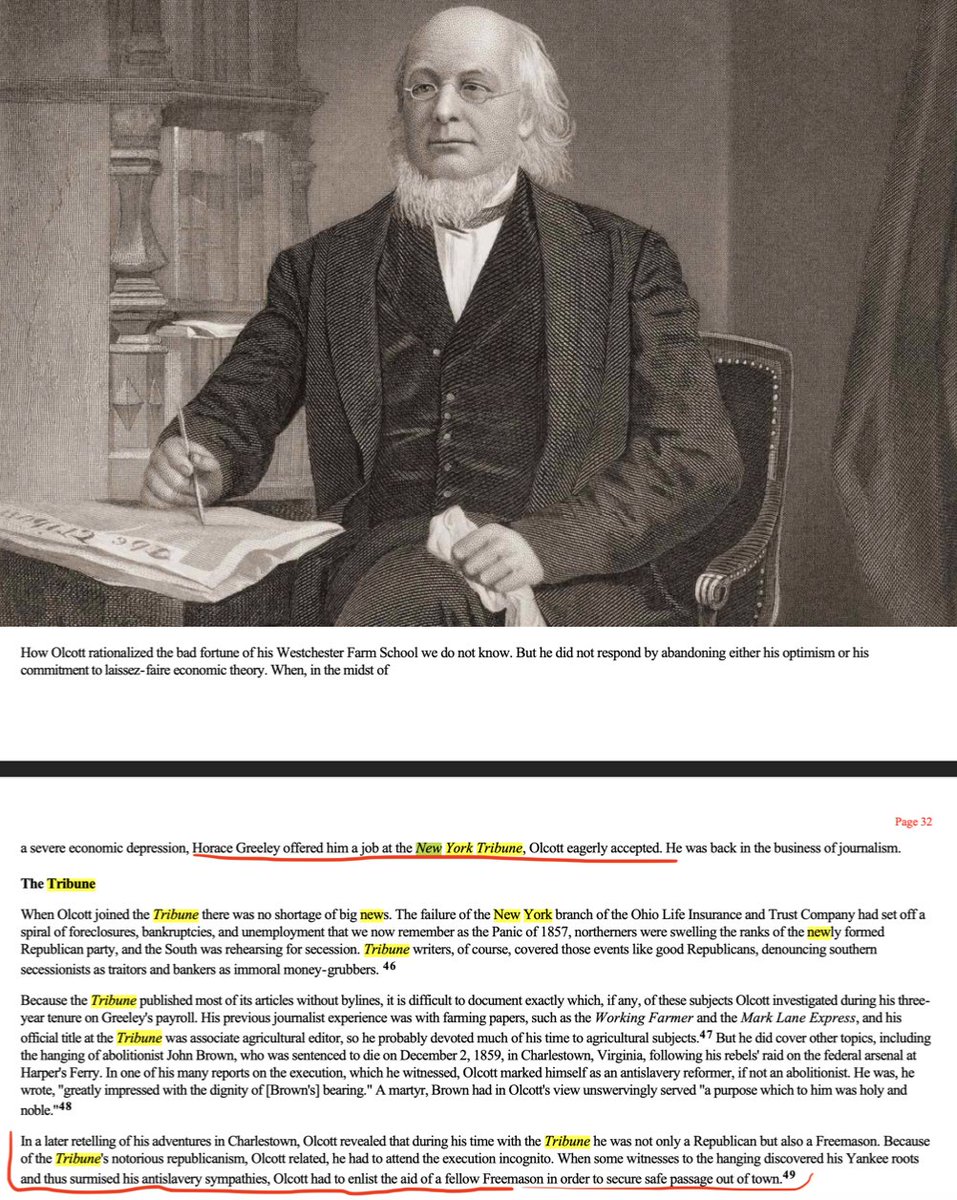
3/ Olcott was present at the execution of John Brown, purportedly as a correspondent for the Tribune. Guess who else was there? John Wilkes Booth, who snuck in disguised as a soldier. Once war broke out, Olcott enlisted as a signals officer w/ the Union, but soon caught dysentery 
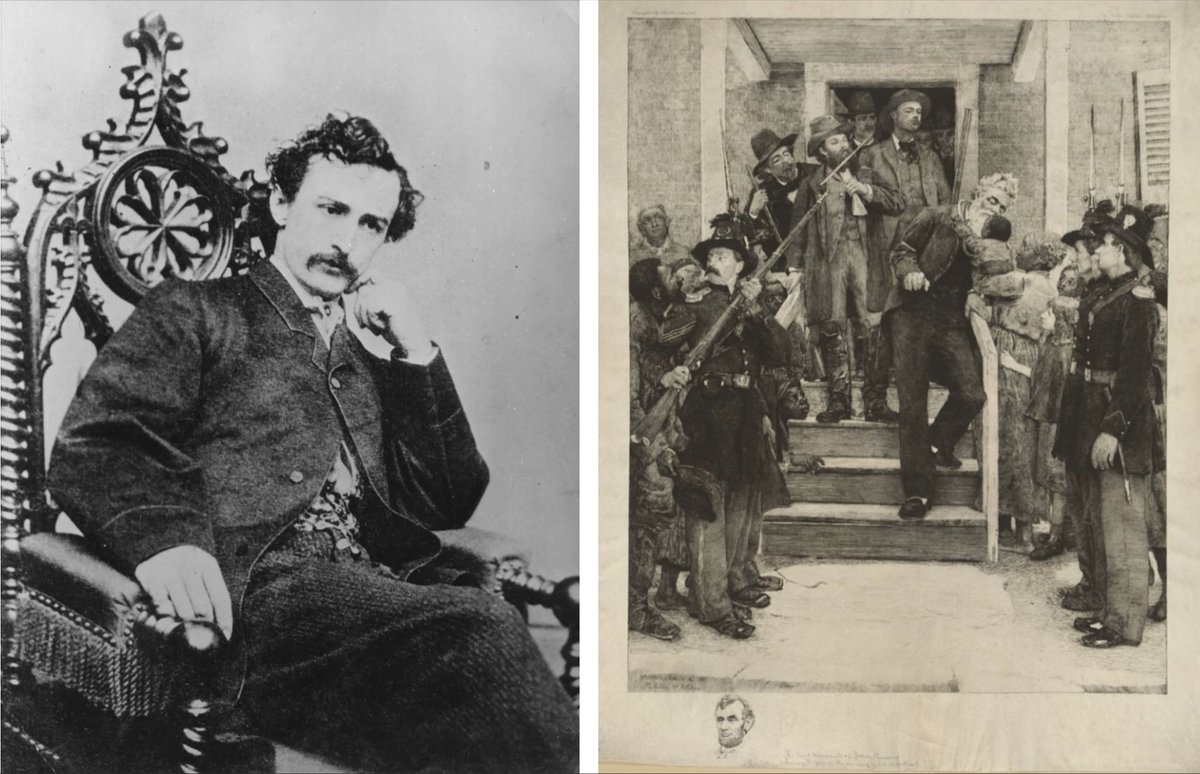
4/ After Olcott’s convalescence, Dana recommended his “investigative” abilities to War Department Sec. Stanton—he was elevated to Colonel & shuttled into Col. Lafayette Baker’s secret service bureau. As Special Commissioner, Olcott investigated fraud among military suppliers. 
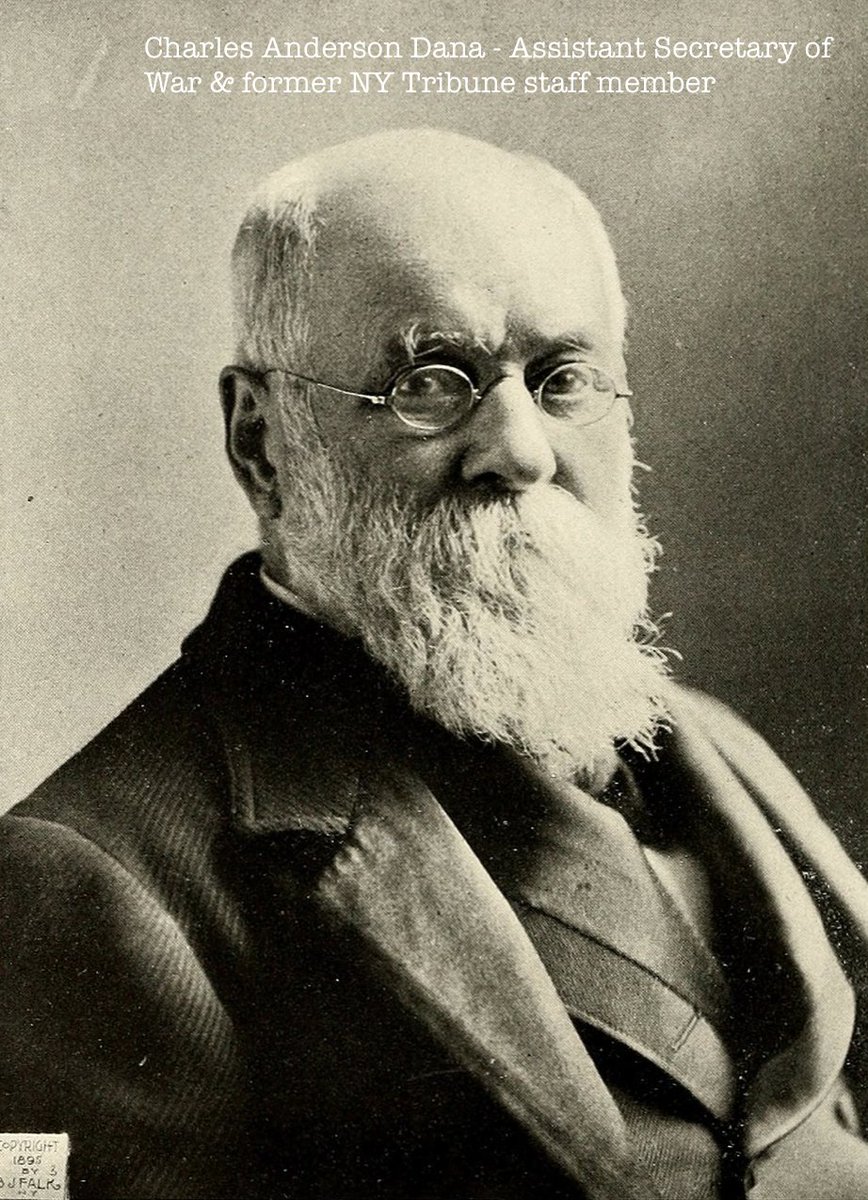
5/ Investigate he did. I’ve found retrospective accounts & contemporaneous articles detailing Olcott’s role in proving that Solomon Kohnstamm defrauded the gov’t outta $300,000—he was found guilty & shipped off to Sing Sing for 10 yrs. Interestingly, Olcott similarly went after… 
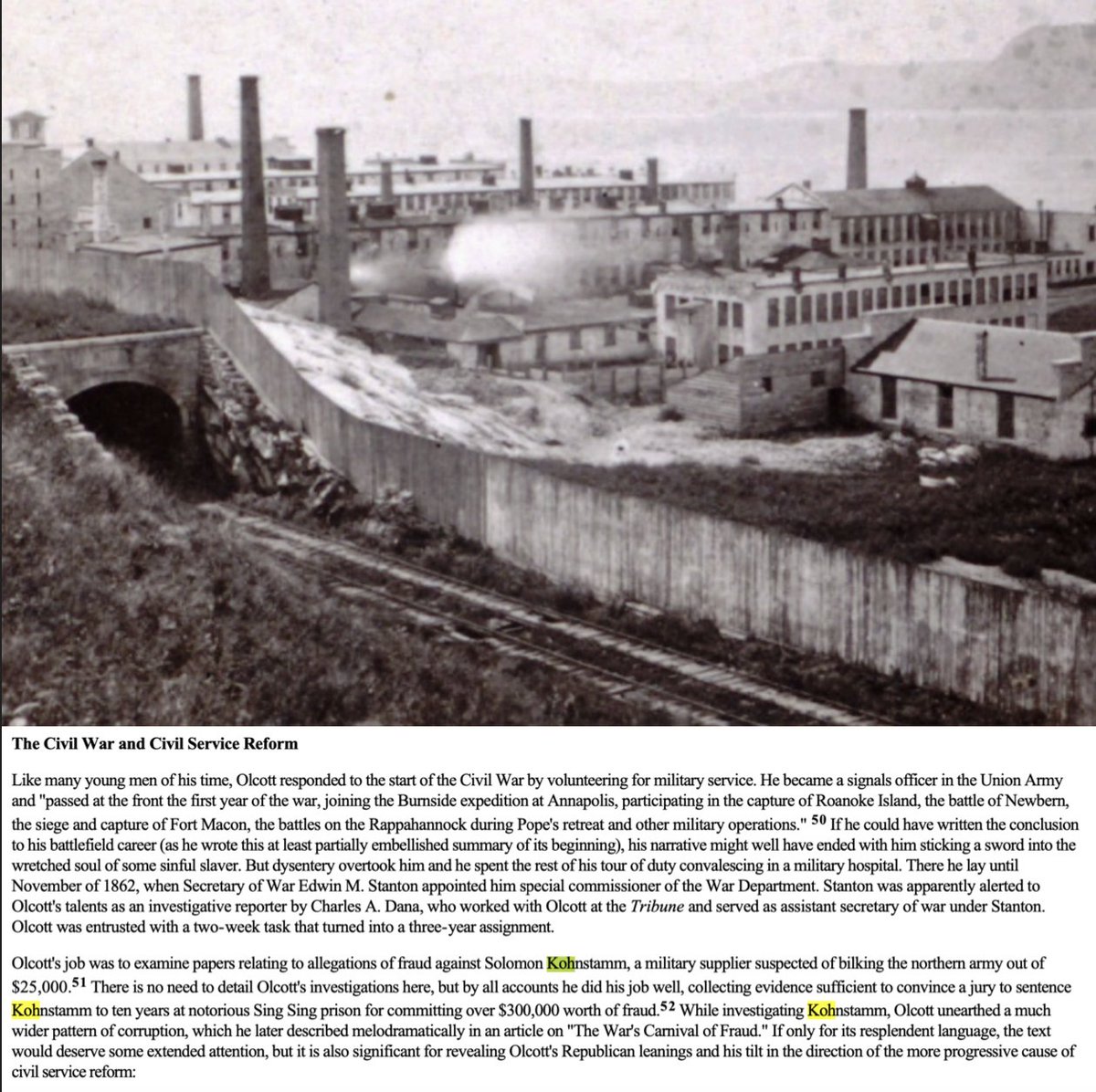
6/…a Navy agent who was also the bizness manager of the New York Evening Post (NY Post today; then edited by William Cullen Bryant), bringing charges against him. Here’s where things get really interesting. Firstly, you need to know that Olcott was a member of a NY Masonic lodge 
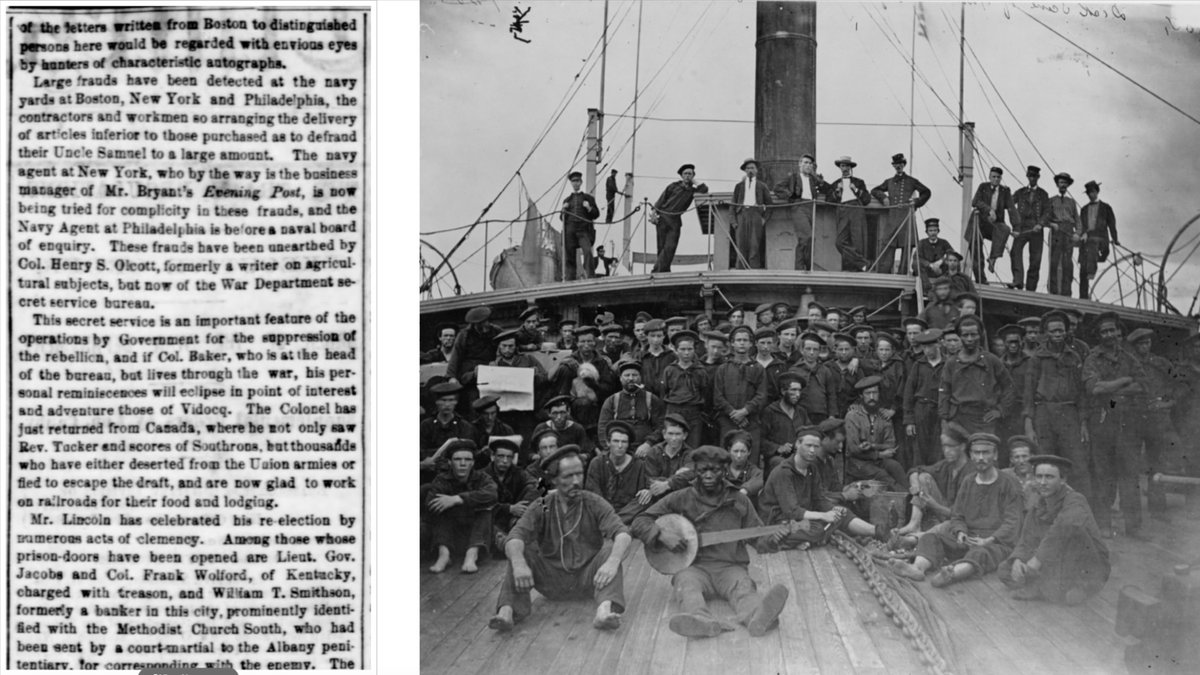
7/ It’s v likely the fact Olcott was on the level figured into the decision to draft him into the War Dept’s Bureau of Military Justice & Stanton’s employ as much as any purported “investigative” abilities (remember, he was an ag journalist, not a muckraker or writer of exposés). 
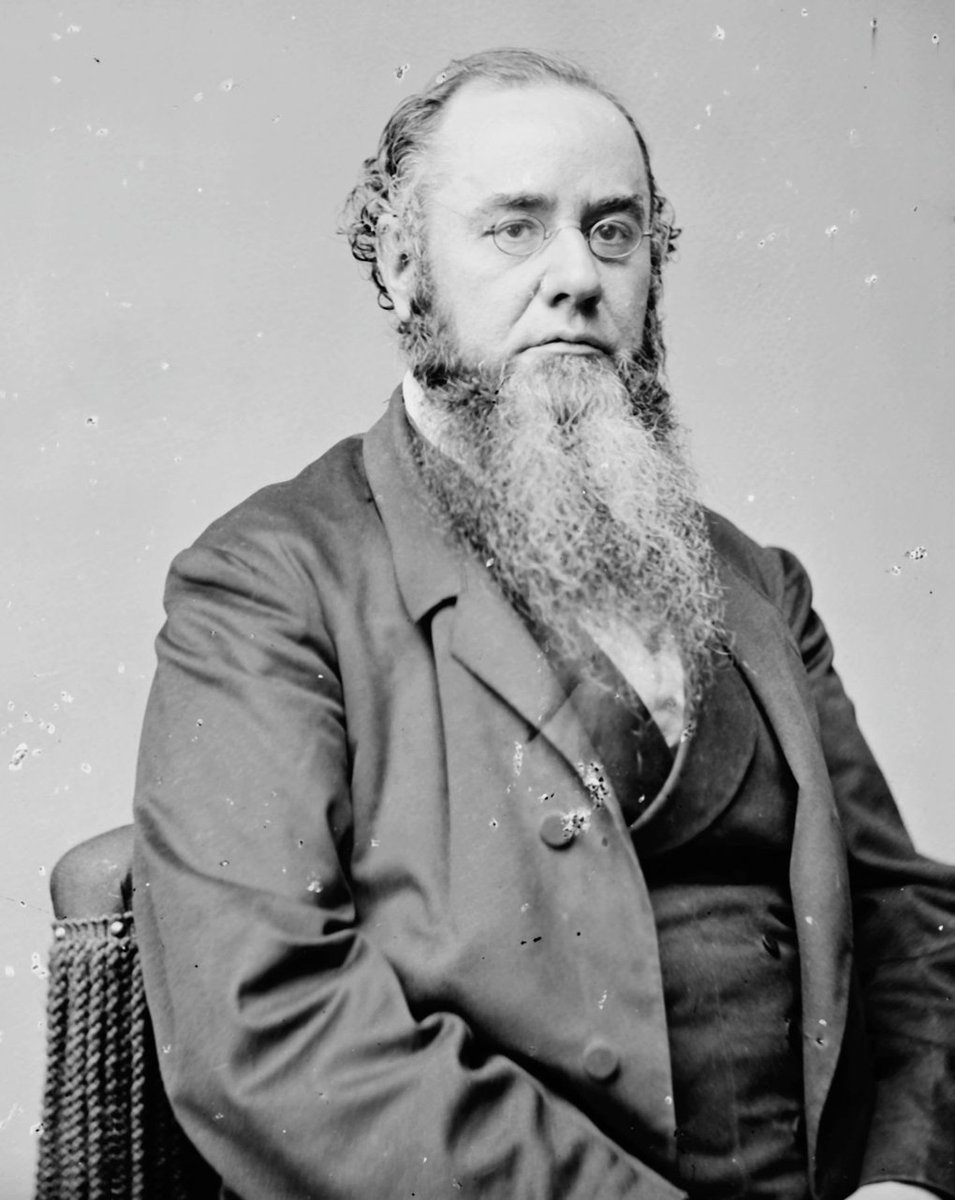
8/ Olcott telegrammed Sec. Stanton 2 days following Lincoln’s assassination, offering his “services”. He & his team of detectives were summoned to DC. The following is some of what I’ve been excited to share, because I think these aspects of Olcott’s history aren't widely known. 
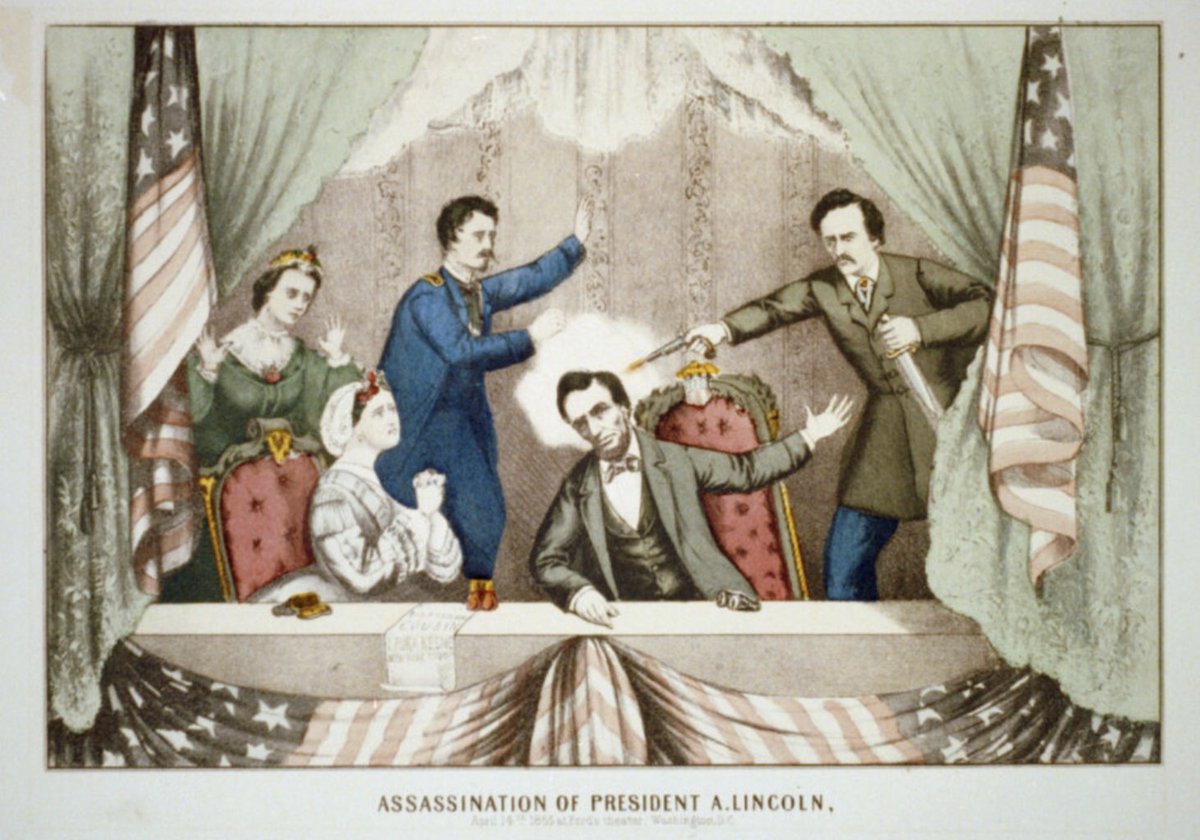
9/ I checked, & I don’t believe McGowan makes any mention of Olcott’s involvement in the Lincoln “investigation” (c*v*r-*p) in his series of essays, tho he might have elsewhere. Let’s talk about some of the specifics of his role in the proceedings post-assassination. 
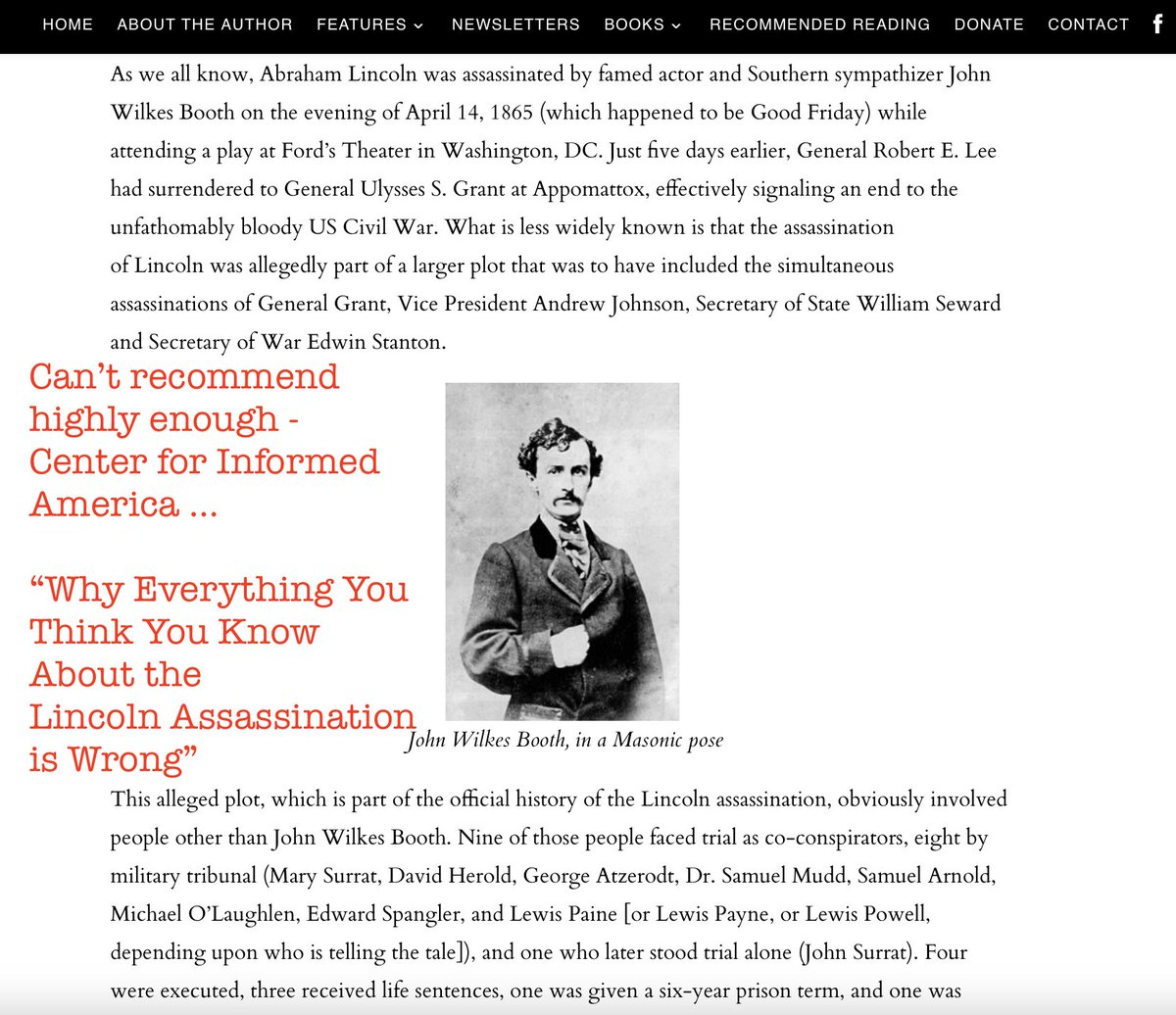
10/ Here’s Stanton’s reply to Olcott’s telegram offering his assistance: “I desire your services. Come to Washington at once.” Evidently Olcott was the arresting officer of the very first “conspirator” captured—Edmund Spangler. 
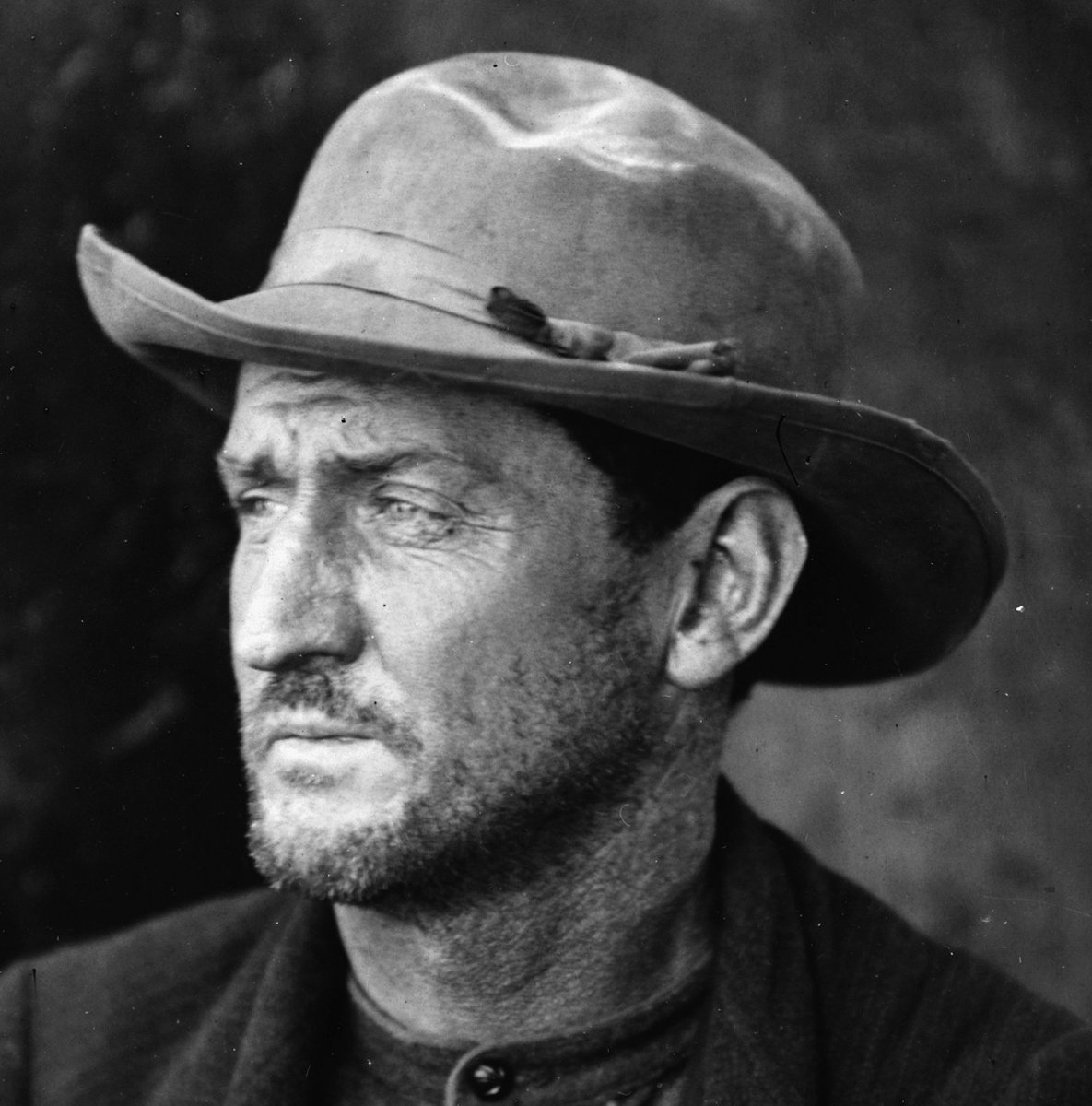
11/ But that’s not all: Olcott & his team of detectives also led the raid on Mary Surratt’s boarding house. Another, and possibly most instructive anecdote, would be the fact that Olcott was the interrogator of Mary Surratt herself, first woman ever executed in the US. 
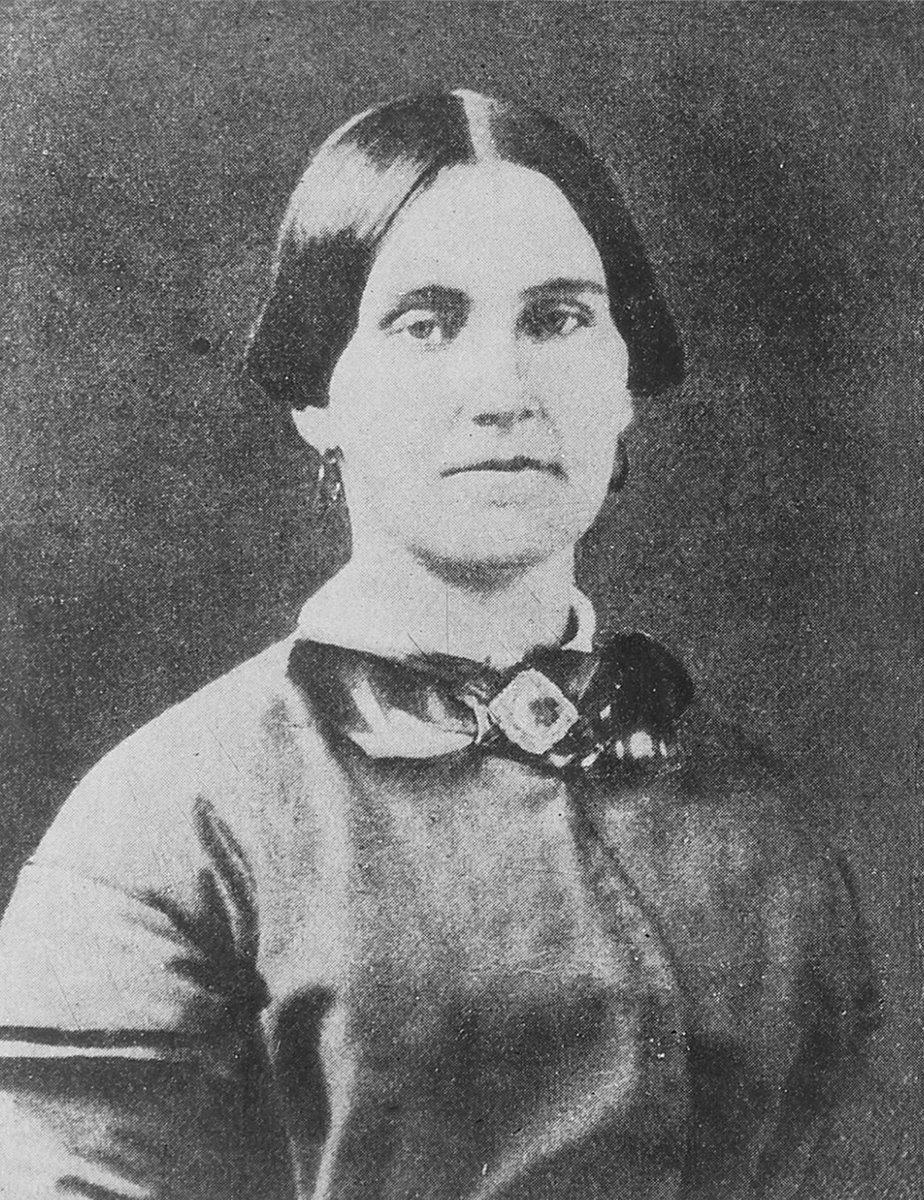
12/ None of the transcripts of Olcott’s interrogation of Surratt were admitted during the trial. Which is telling, considering the many inconsistencies the military tribunal ignored. At the same time Olcott was interrogating Surratt, her son—known Confederate agent & Postmaster… 
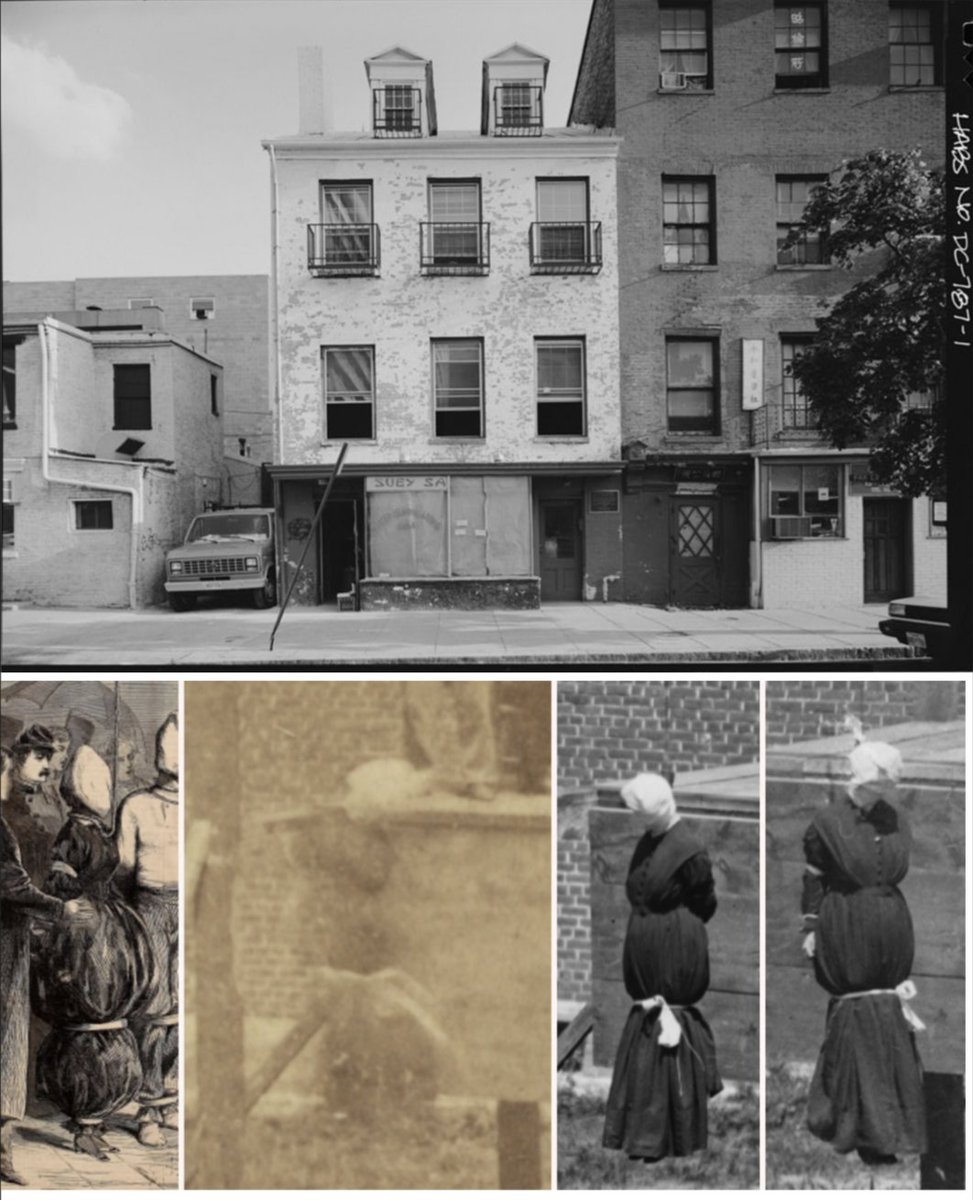
13/…of their village in Maryland—John Surratt, fled Canada w/ the help of Catholic priests who sheltered him. He would eventually make it as far as Italy, where he’d briefly join the Papal Zouaves, before the Church offered him up for extradition, causing him to bolt for Egypt… 
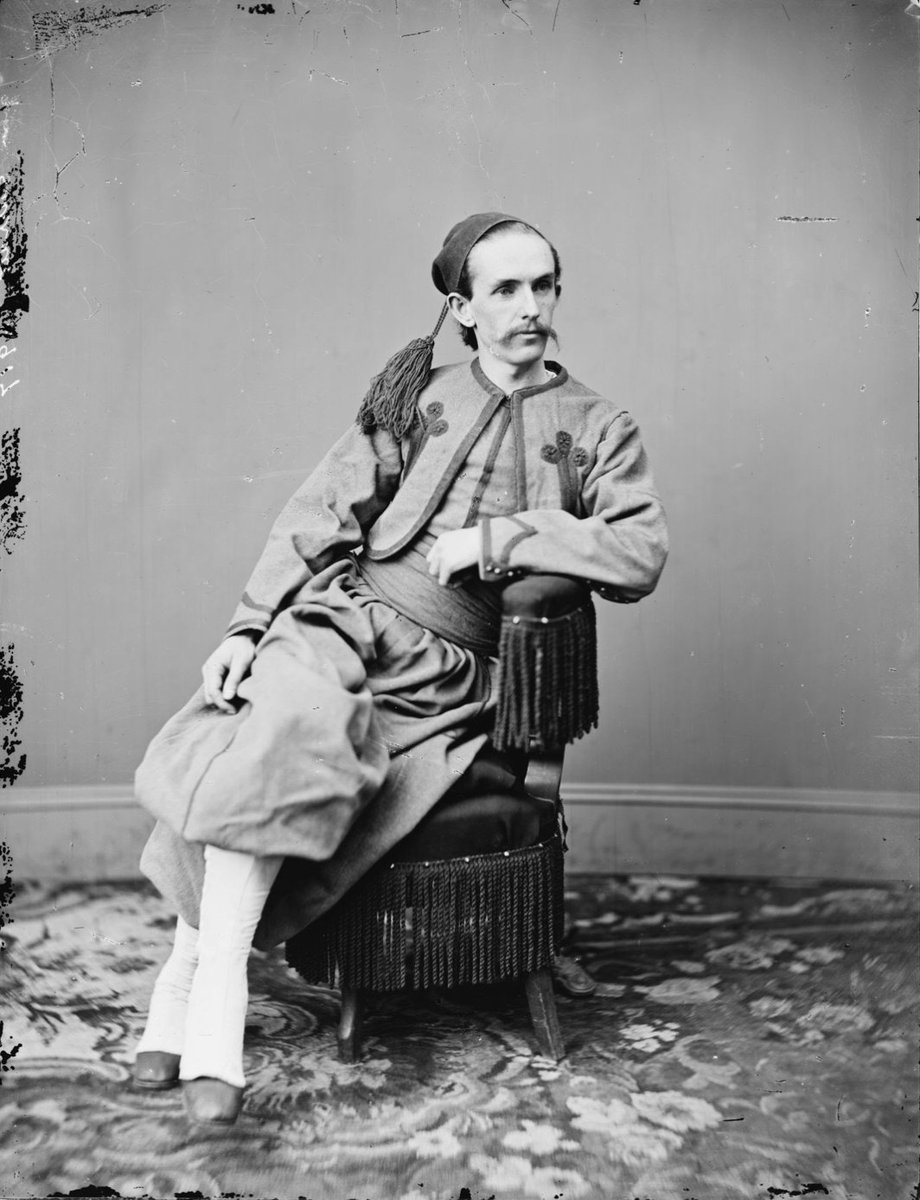
14/…where he was ultimately arrested. As McGowan argues, the gov’t was reluctant to see Surratt return, especially due to the fact that, w/ the War over, his trial would be held in the actual judicial system. Surratt was the sole supposed “conspirator” not to be executed. 
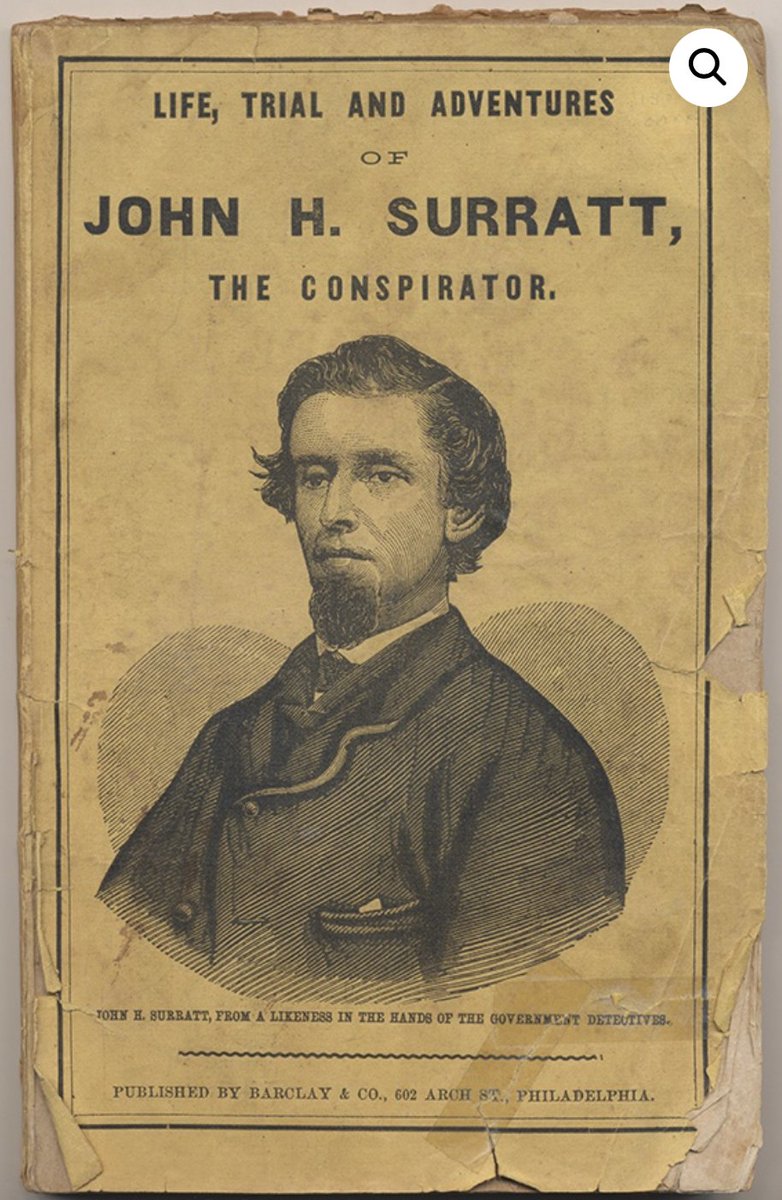
15/ I think it’s not unlikely that, as McGowan seems to hint, the Surratts may have actually been dbl agents, working for both the Confederacy & the Union (whether voluntarily or not, who knows), but that’s beyond the purview of this thread. 
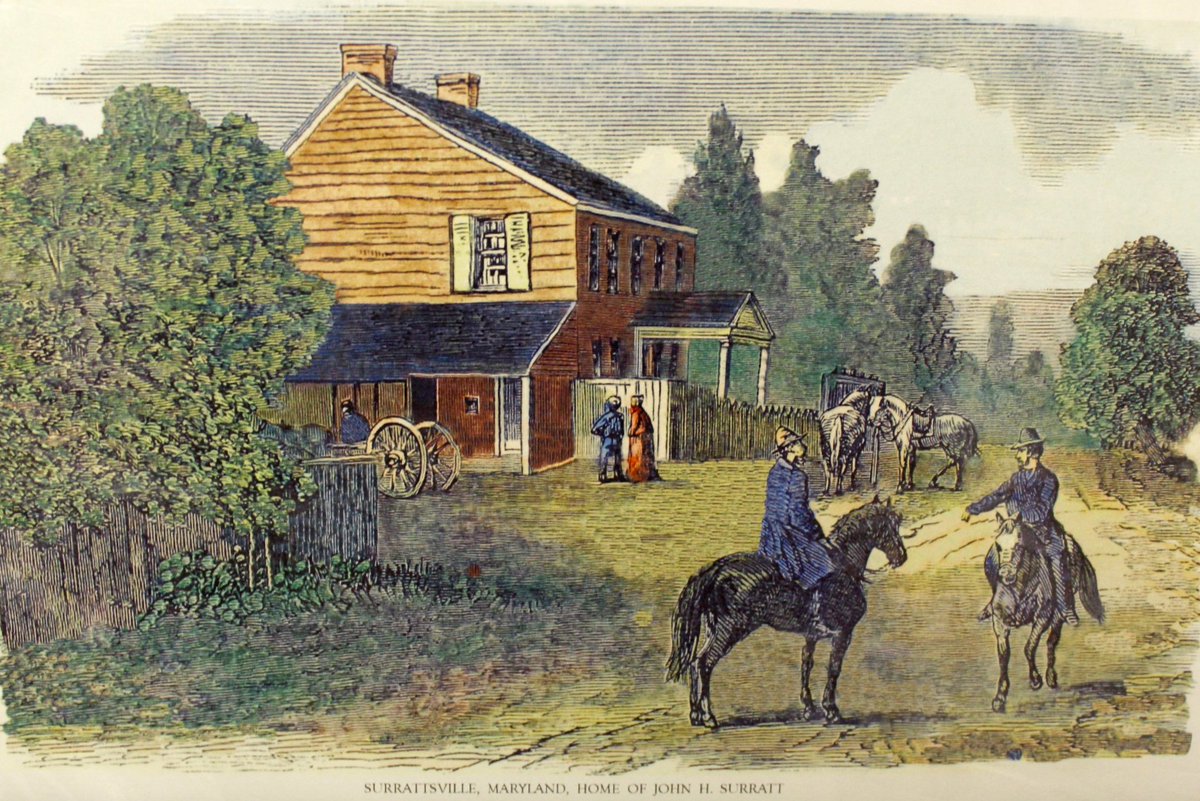
16/ What isn’t, tho, is the fact that an insane number of those in proximity to or directly connected to the assassination & ensuing “investigation” wound up dead under sus circumstances in the years immediately following, including Olcott’s direct higher up, Col. Lafayette Baker 
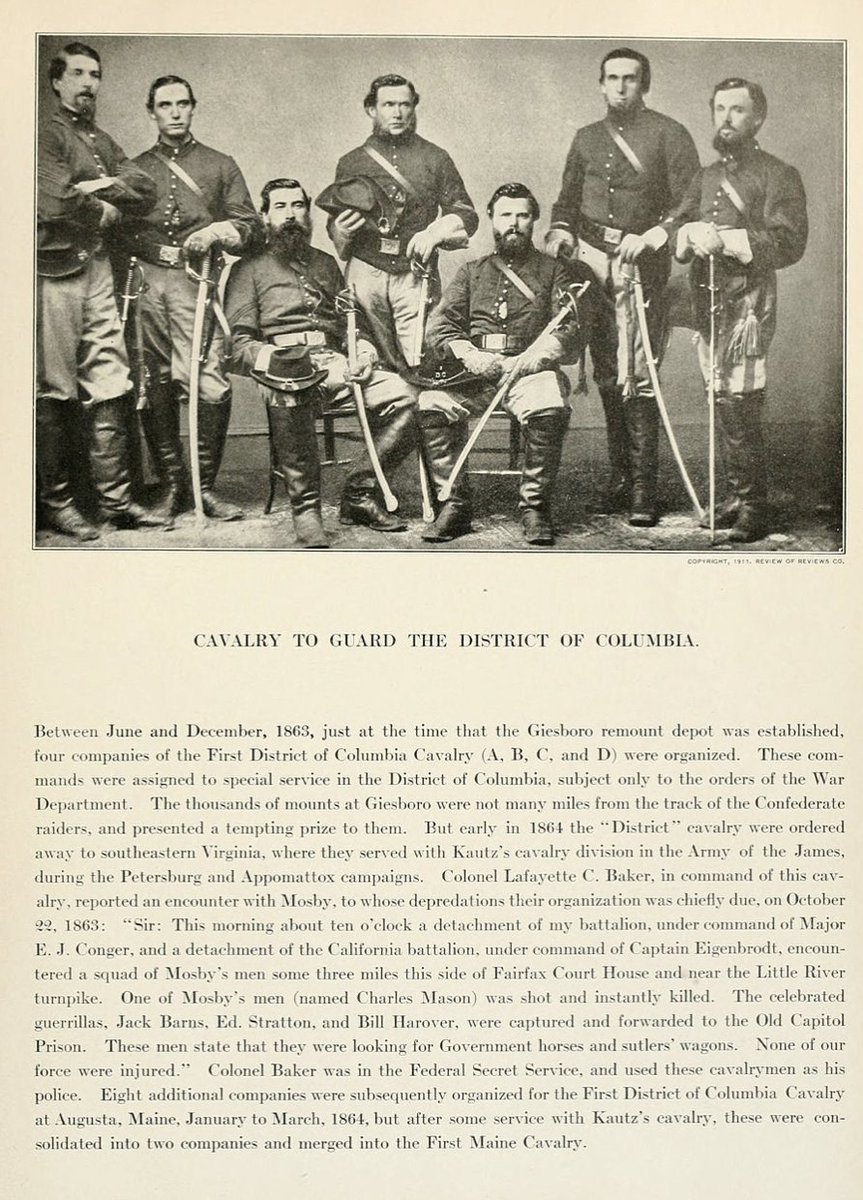
17/ There were multiple attempts on Baker’s life after he published a book professing knowledge of John Wilkes Booth’s secret diary. He would later claim to friends & family that a “cabal”, to use McGowan’s wording, was trying to off him. In 1868, meningitis would do him in. 
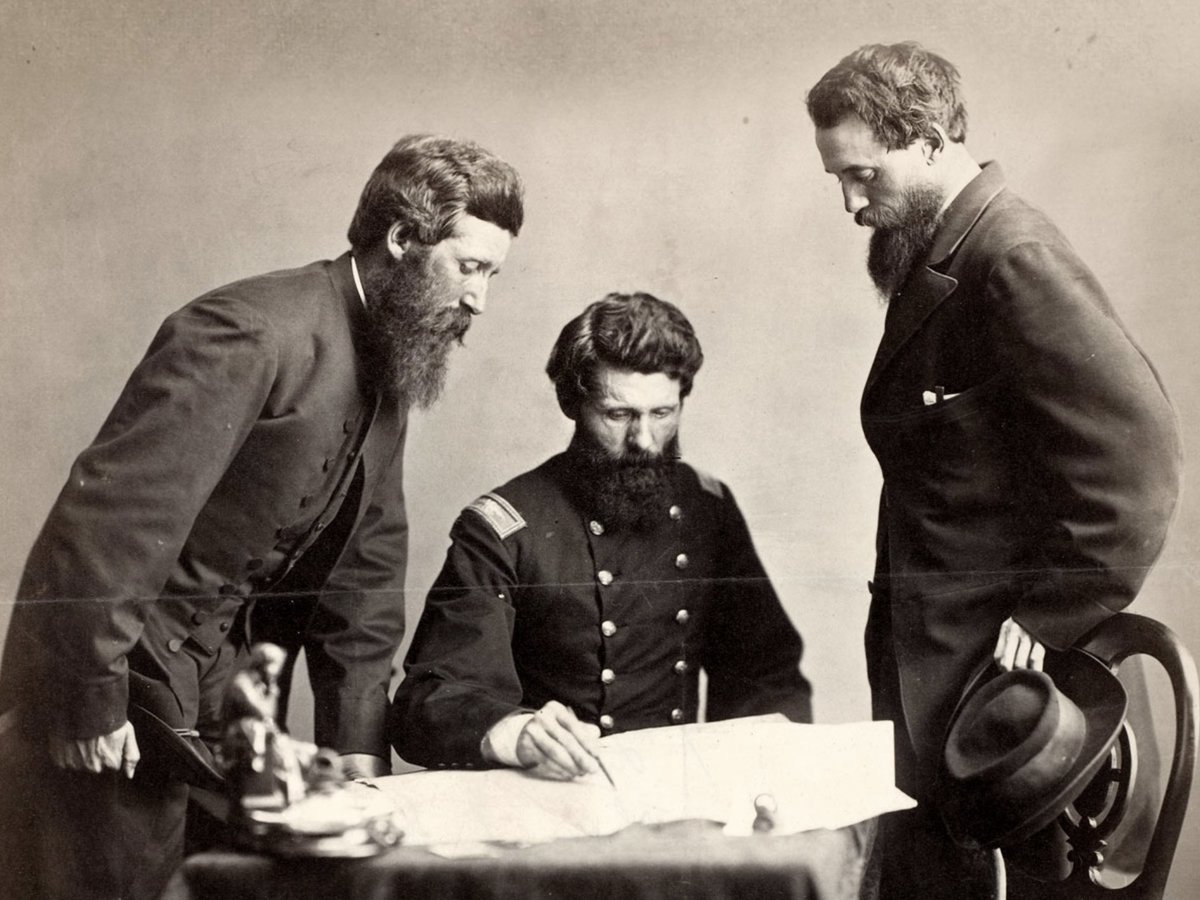
18/ According to Dave, he was shot 2x & stabbed on his porch. He finally succumbed at 41, following a night of drinking w/ his brother-in-law. Baker was promptly buried, but a later inquest & coroner’s report would determine that his death was consistent w/ arsenic poisoning. 
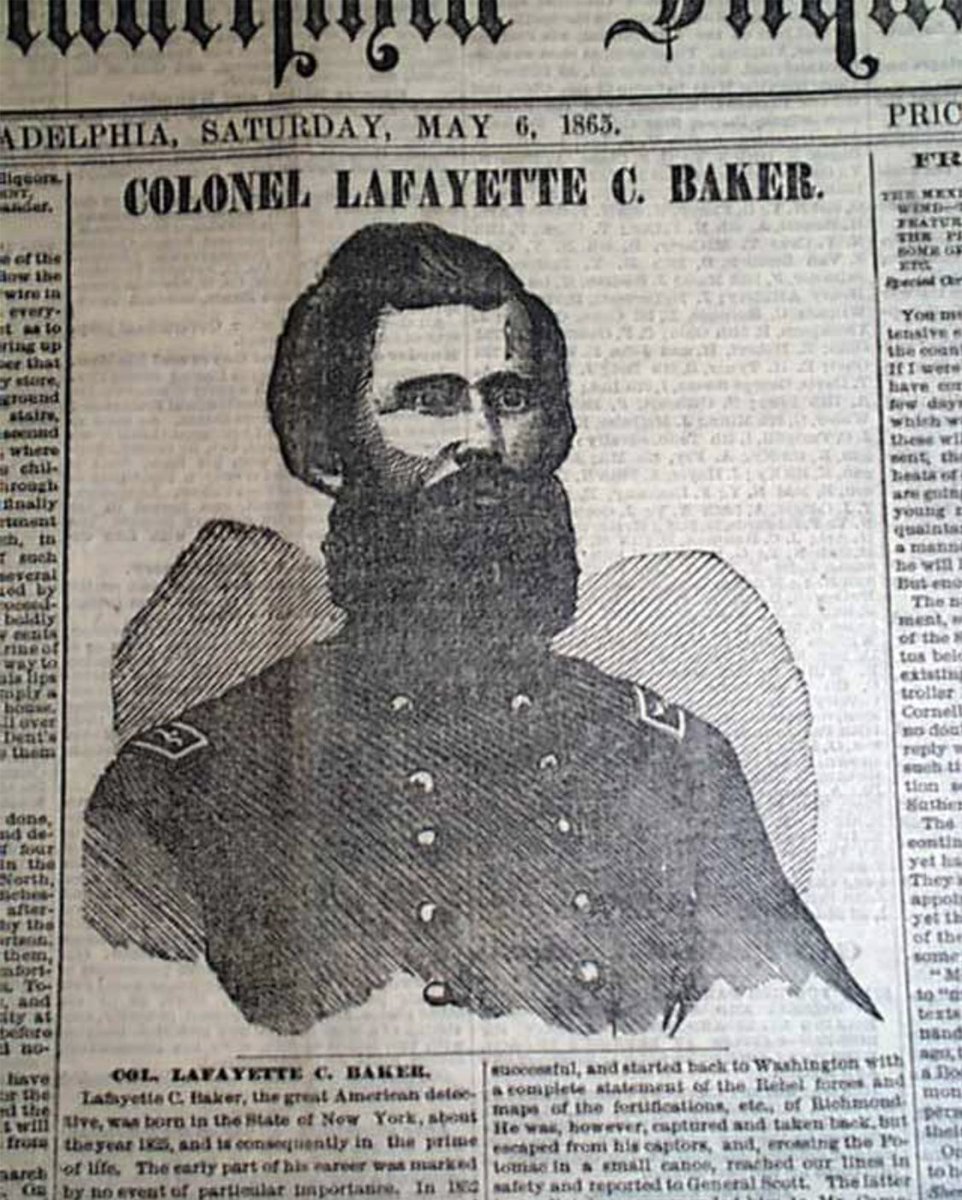
19/ Following the assassination, at least initially, Baker was in the good graces of the gov’t: Johnson nominated him for brigadier gen (altho never confirmed by Congress) & he received some of the $100,000 reward for the apprehension of Booth (hush $?). 
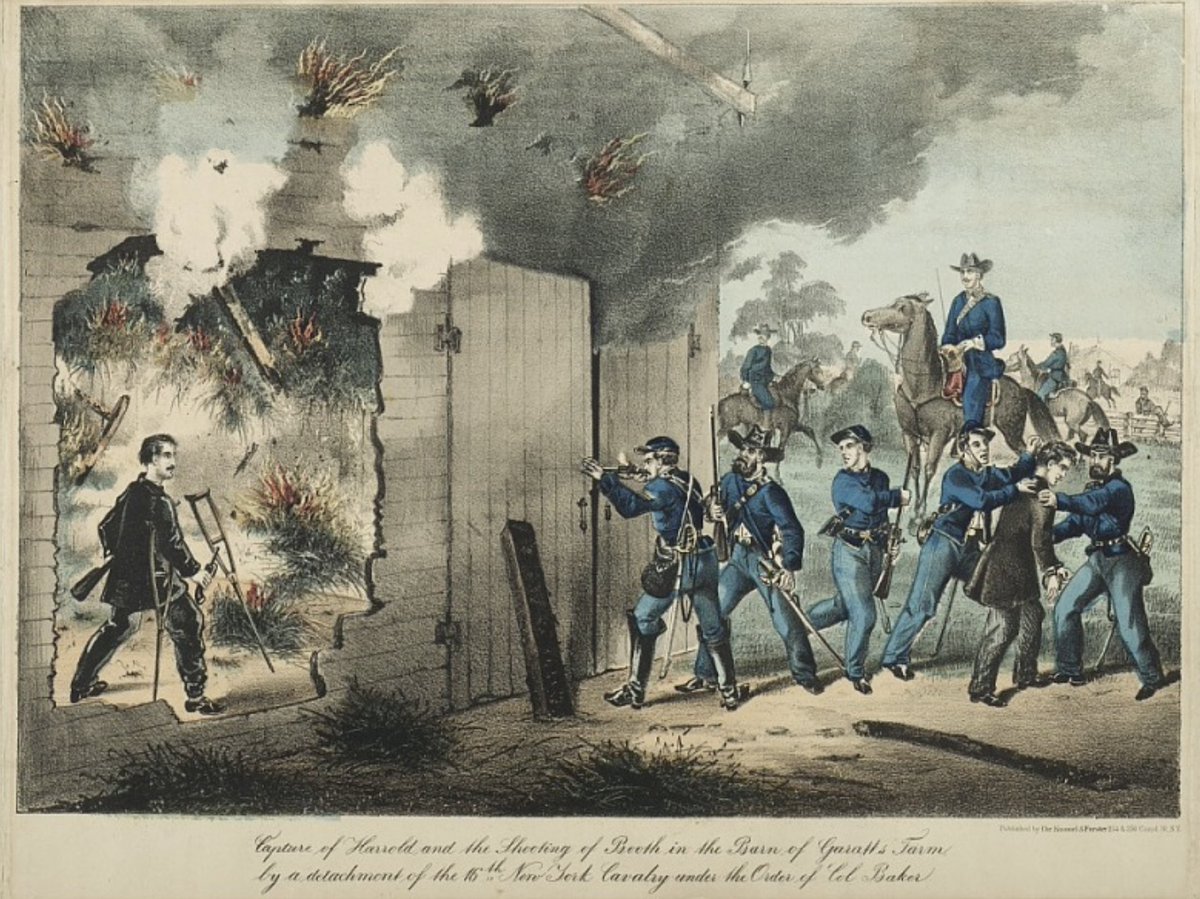
20/ Altho it’s not impossible Baker played a role in the conspiracy, he seems to have sealed his fate by wire tapping Sec. Stanton’s telegraphs—suspecting him of corruption—presaging his demotion. Following his removal, the publication of Booth’s diary provided further incentive. 
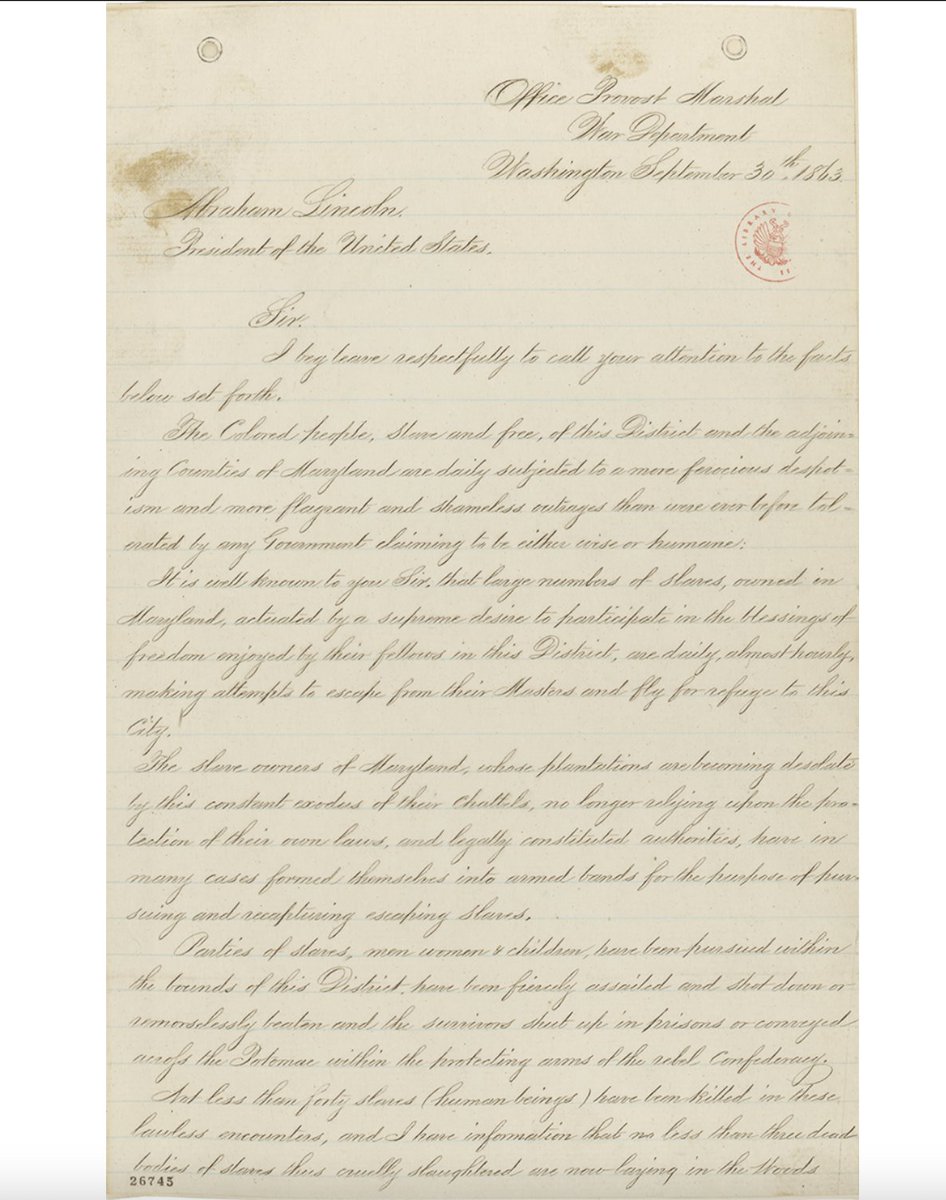
21/ I find it intriguing how Olcott managed to survive so many years following Lincoln’s death & swift uncovering of the consensus conspiracy. Altho I haven’t found a source confirming it, I wonder whether the prev. mentioned “3 man board” was him, Charles Dana, & Edwin Stanton 
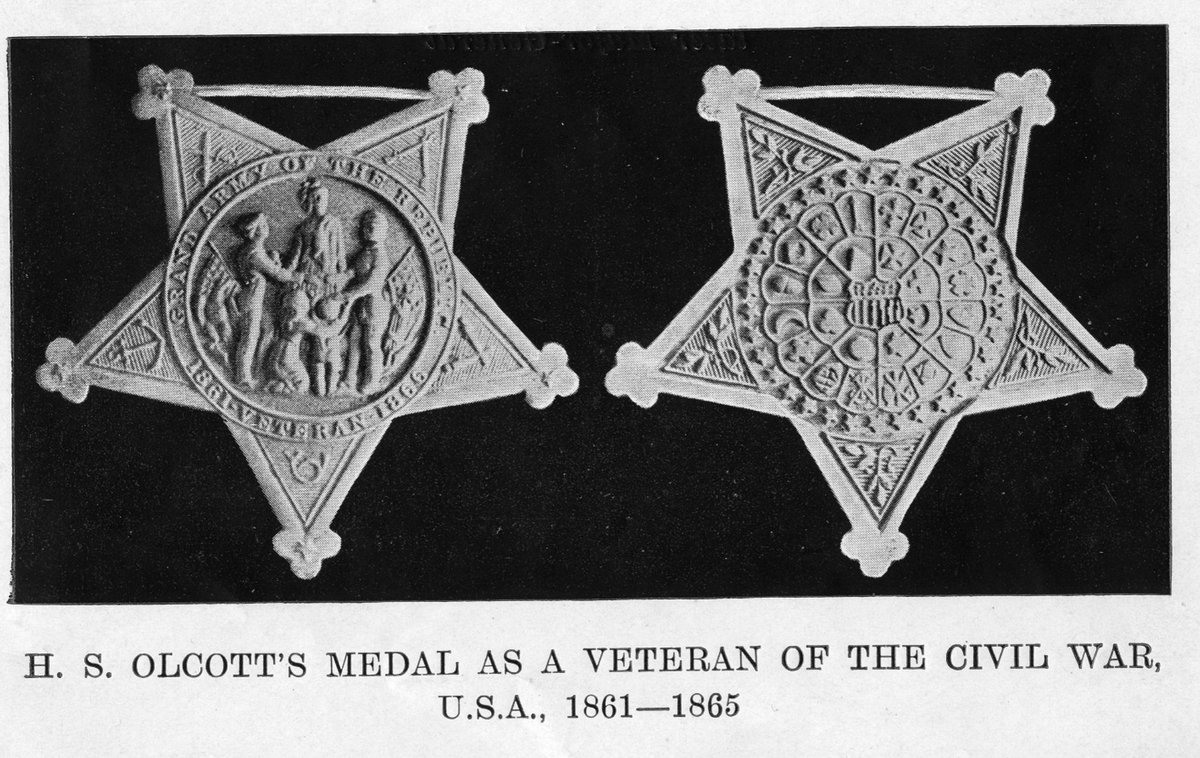
22/ It appears that Olcott was highly trusted by Stanton & Dana. Remember, Olcott & Dana worked together at Horace Greeley’s NY Tribune before the war, & both followed similar career paths under Stanton. Dana served in a similar capacity as “Special Commissioner” prior to Olcott 
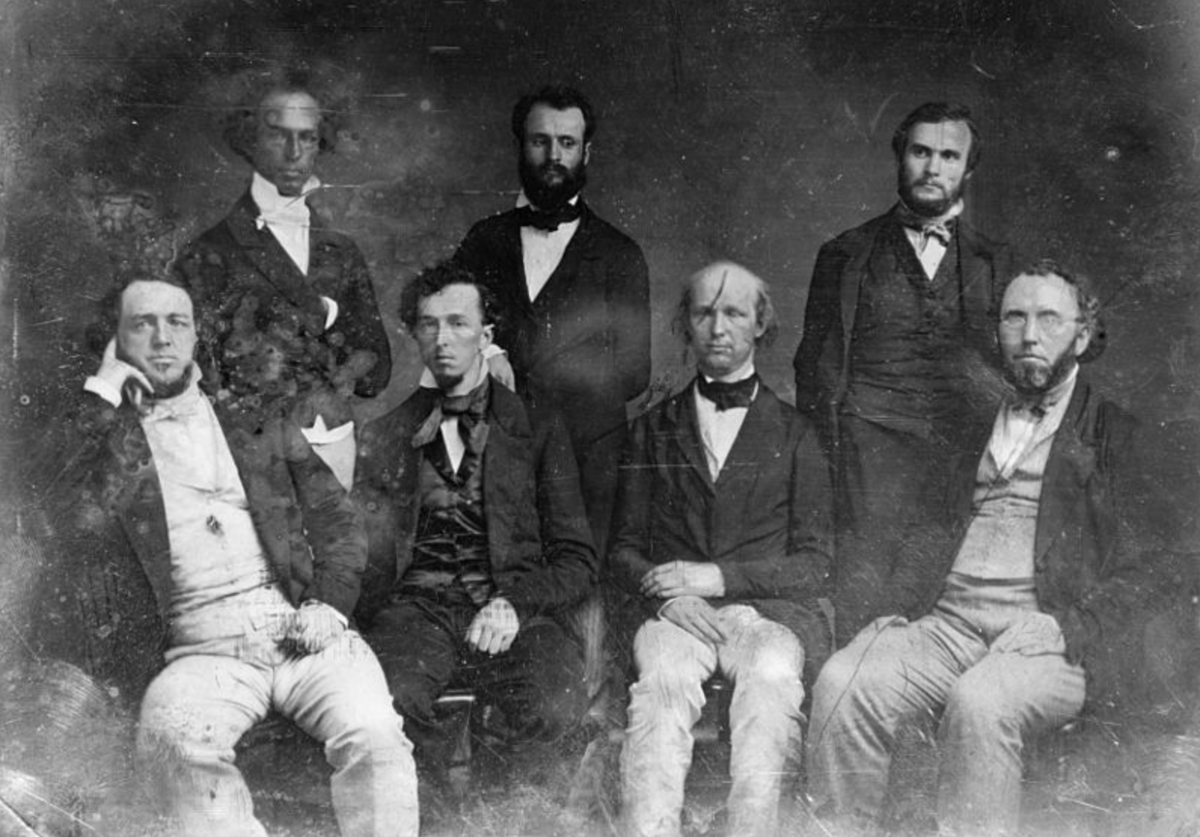
23/ Similarly to Olcott, Dana also investigated frauds among “quartermasters & contractors”. Dana was among the # of those connected to the assassination & investigation that saw their fortunes soar (contrary to ending up 6 ft under)—he became a part owner of the New York Sun. 
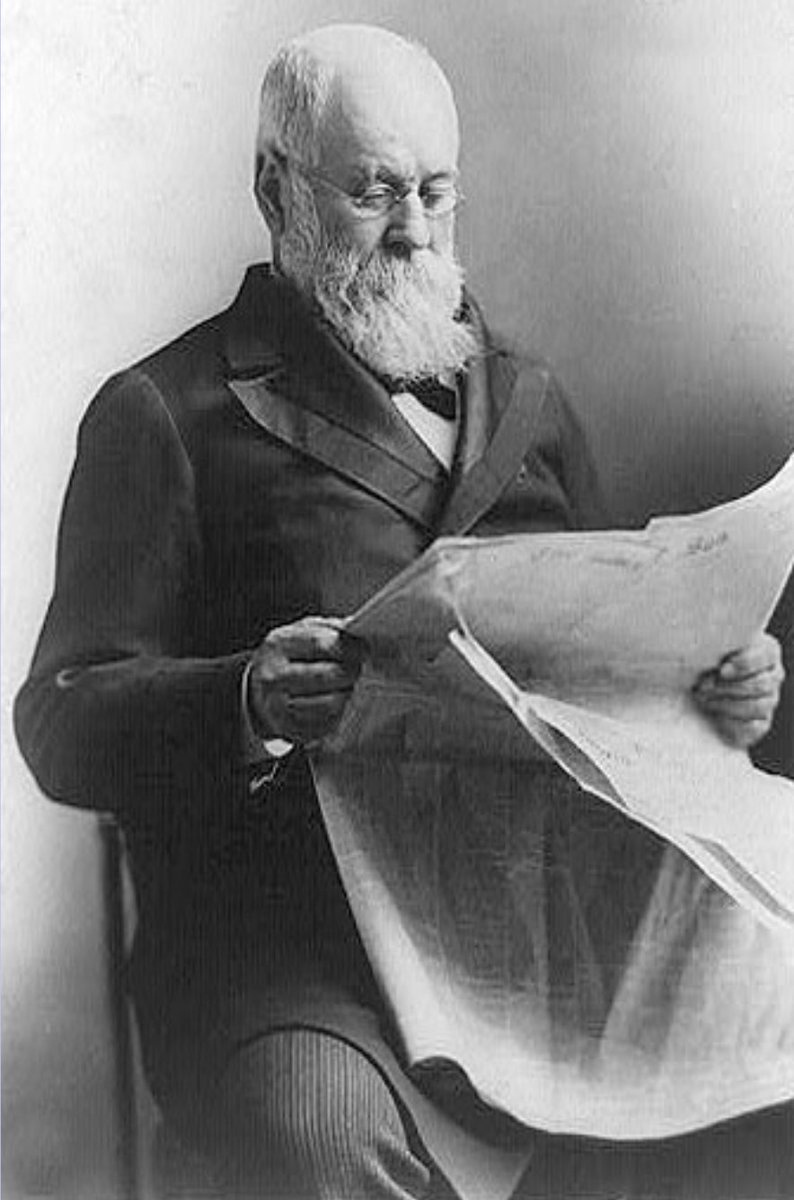
24/ Following his “resignation” from the War Department, Olcott passed the bar & opened a law office in NYC. I found an article covering his representation of Wall St. brokers in a broker tax litigation. He def did well for himself, as he became Blavatsky's patron & financier. 
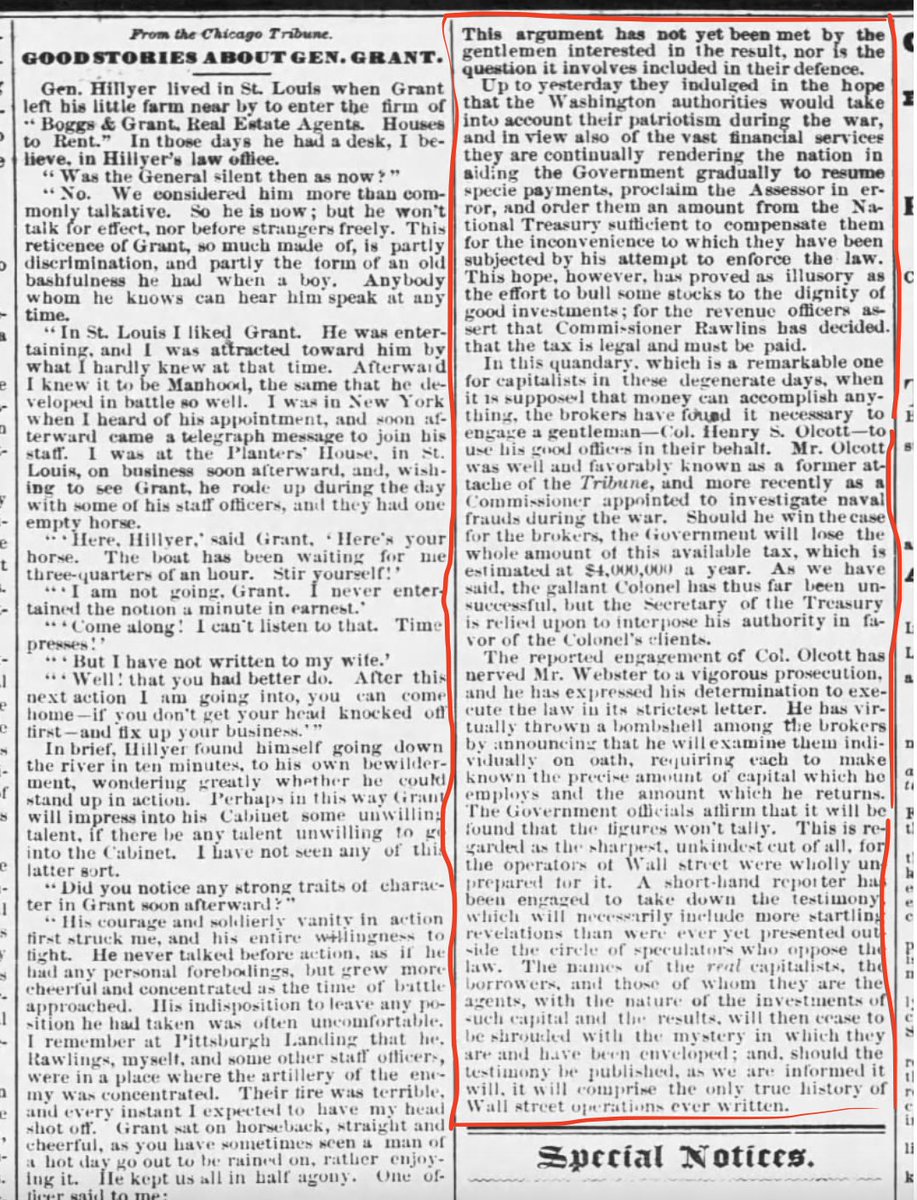
25/ Seemingly having fulfilled his role as assassination clean-up crew, Olcott went on to become an early Western full convert to Buddhism & sunk considerable capital into forming the Theosophical Society, first in NYC before moving the operation to India. 
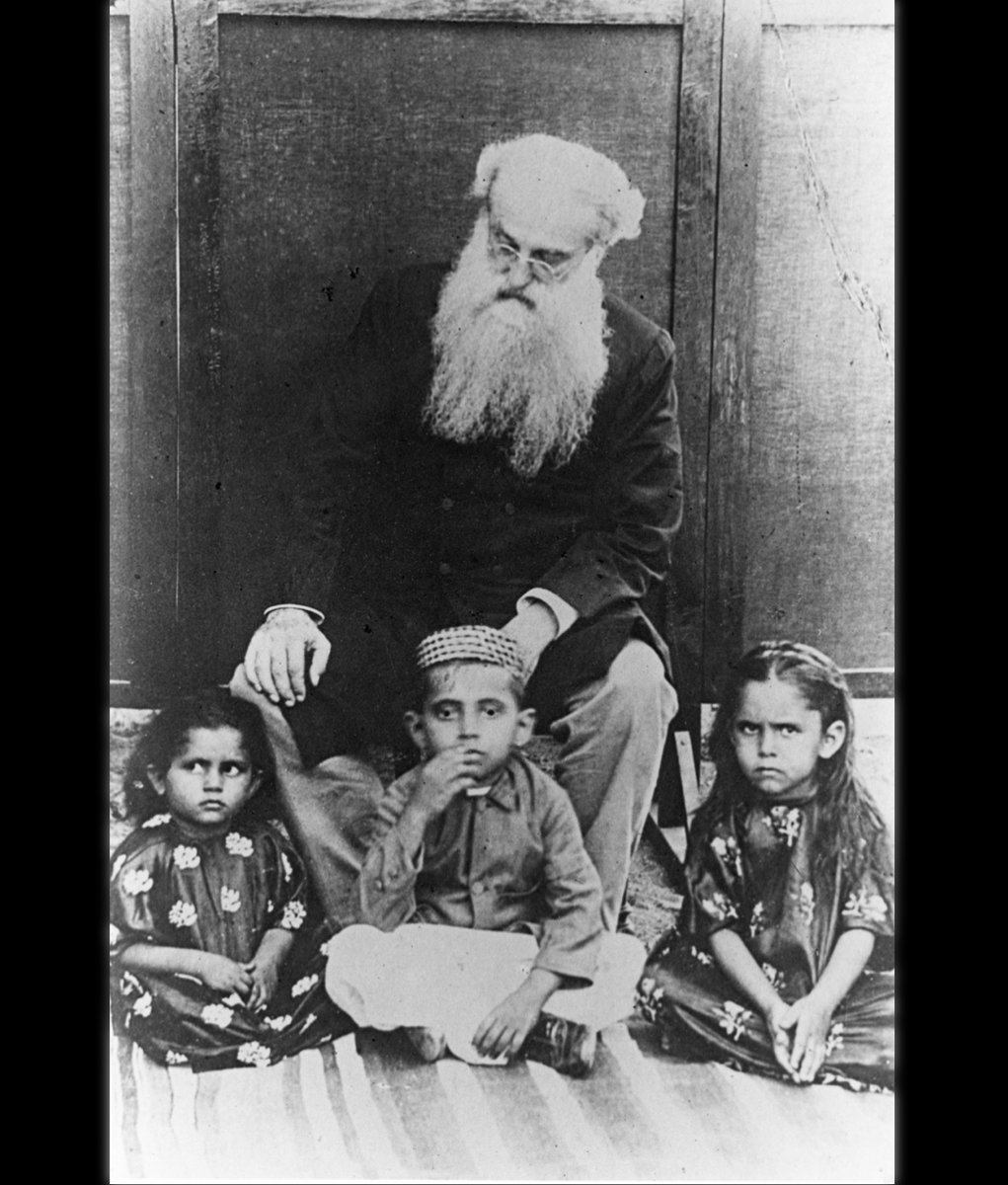
26/ Managed to find a contemporary article in the "Leeds Mercury" that named Col. Olcott & detailed Mary Surratt's arrest approx. 2 weeks following the assassination. I'm unsure if Olcott was physically present at the raid, but his assistant Capt. Wermerskirch certainly was. 
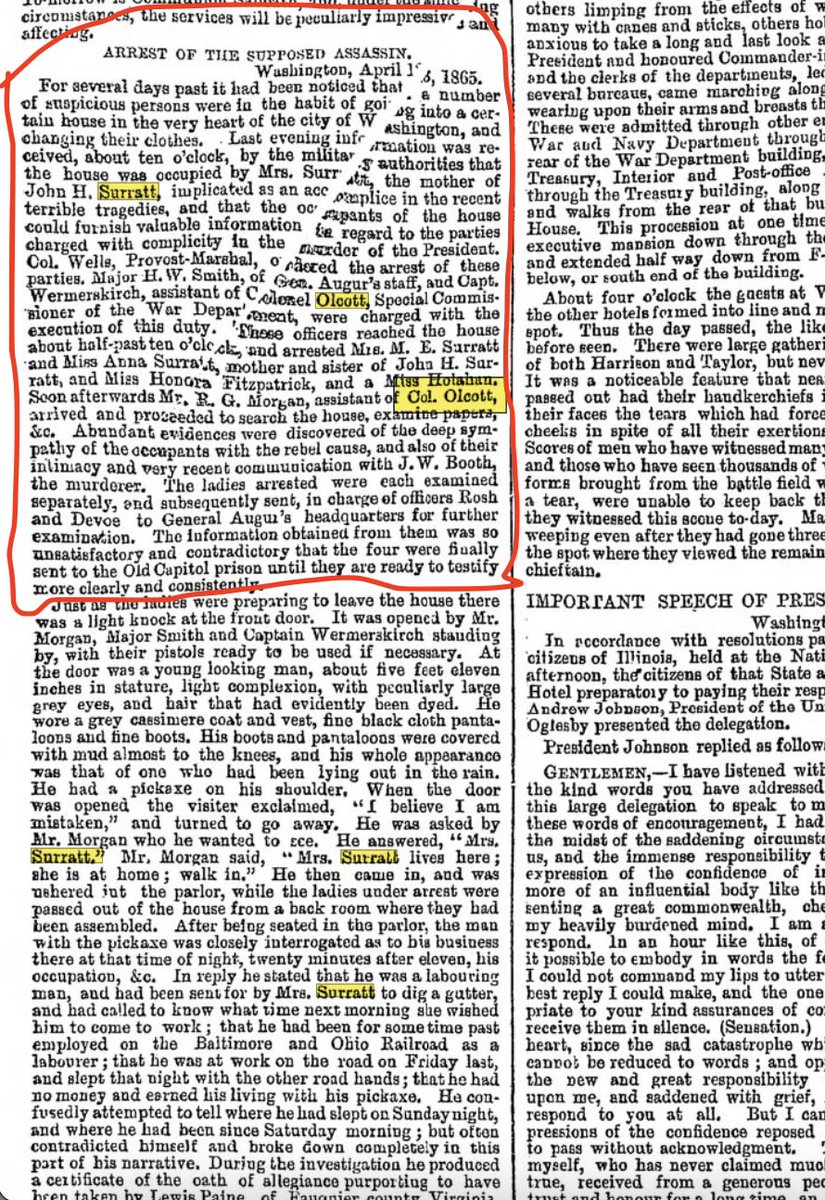
27/ Can't help myself. This is wild. Here's an excerpt from an article by the Washington correspondent for the Chicago Tribune (Aug. 9, 1865) revealing the various parties that vied for the $100,000 Booth, etc. reward. Olcott & his detectives were 1 set of claimants—Baker another 
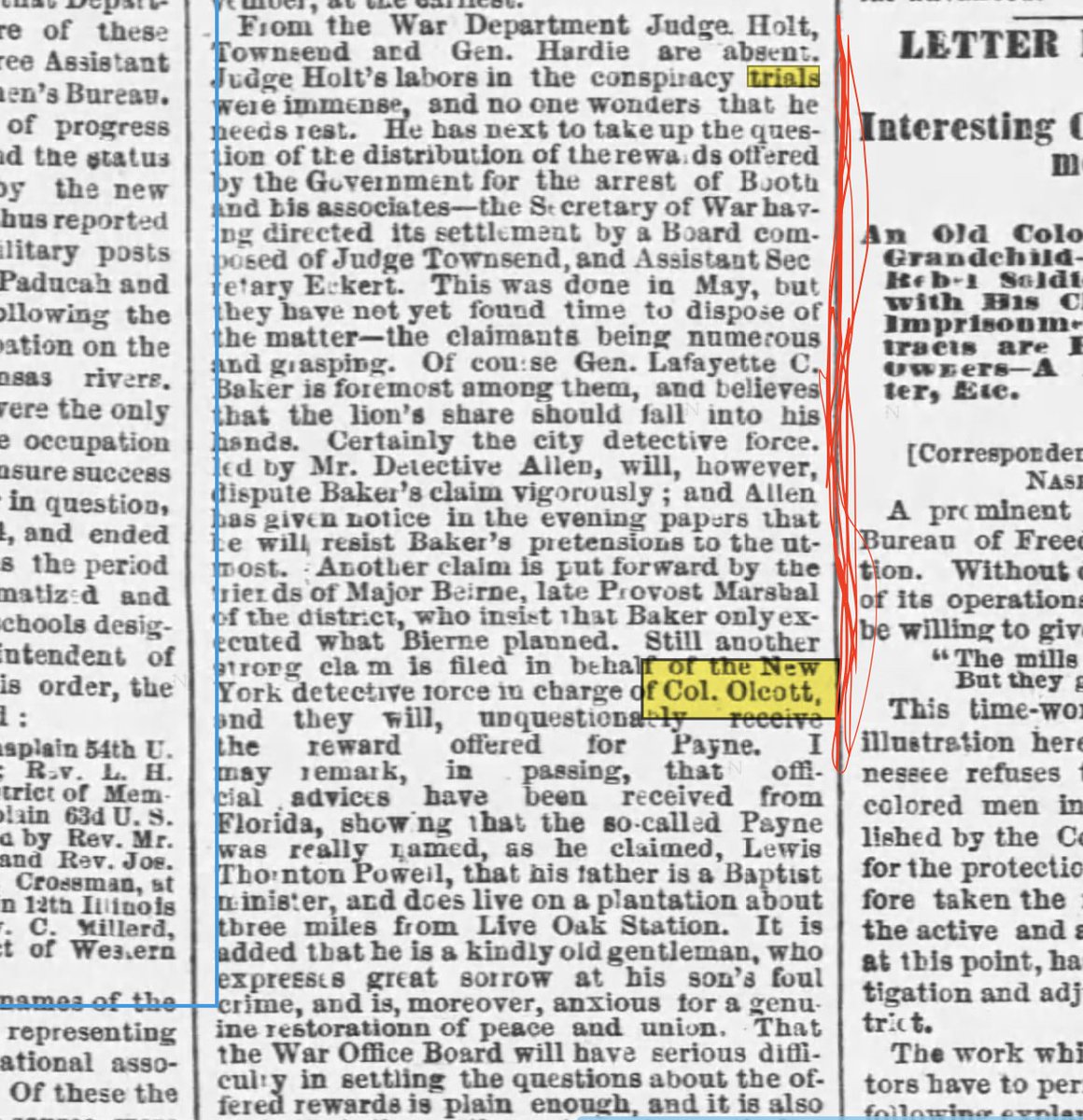
• • •
Missing some Tweet in this thread? You can try to
force a refresh

 Read on Twitter
Read on Twitter

